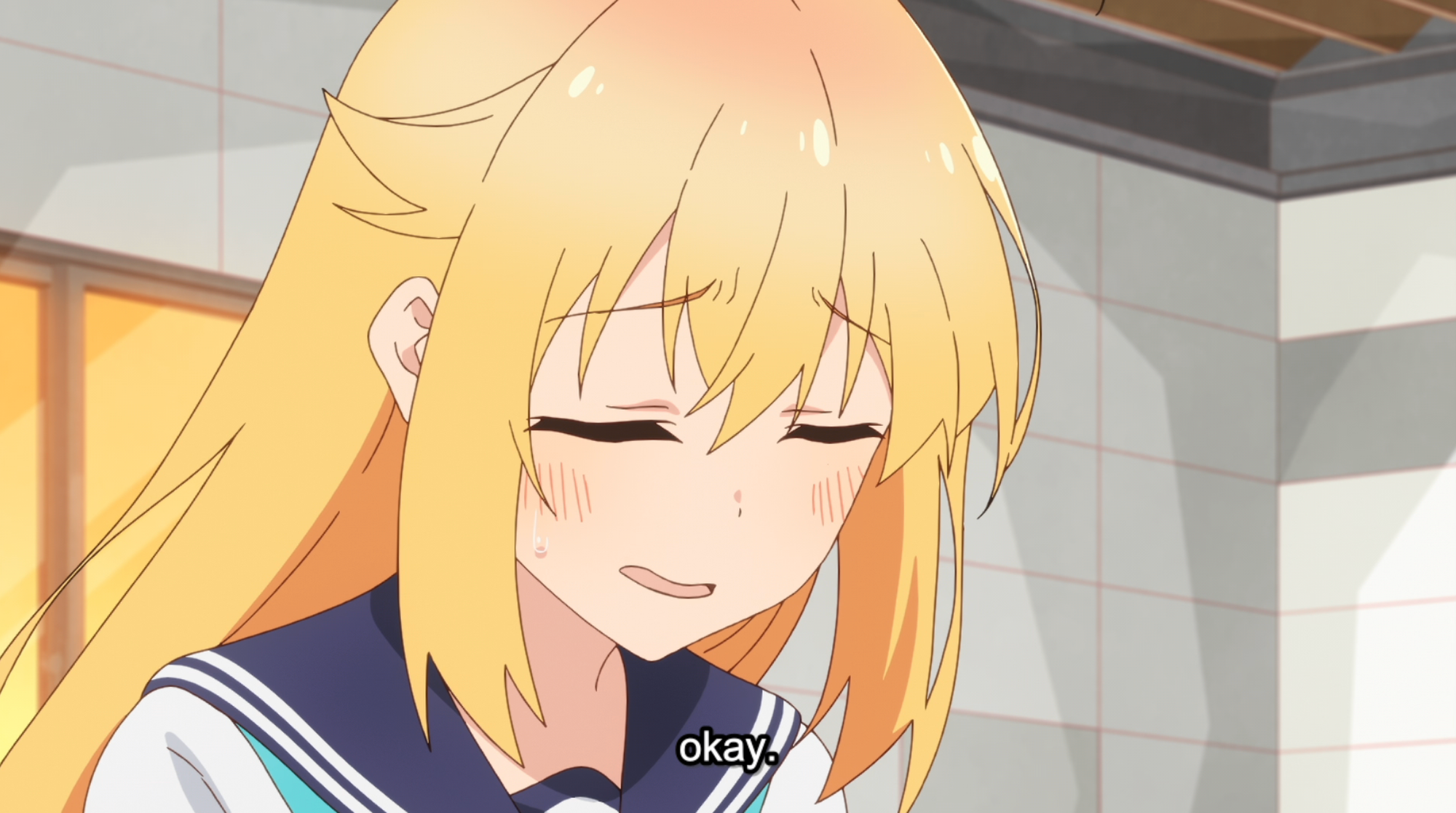Last year, I took a look at HIDIVE's Oshi no Ko subtitles, since they kind of sucked. There was missing inflection, bad sentence structure, inconsistent grammar, and tons of other issues with the release that you can read about in the article that's linked above that really detracted from the viewing experience.
However, with this season's hallmark anime, Shikanoko Nokonoko Koshitantan (localized in English as My Deer Friend Nokotan, which is a solid B+ name), I might need to dial Jake Jung and apologize; at least the subs he presented were (somewhat) reasonable and (somewhat) human. I don't know who at the top thought this was okay, but somehow, My Deer Friend Nokotan has some of the worst subtitles I've seen in a simulcast release over the past ten years.
Nominal spoiler warning for episode 1 of this show, by the way. This is a comedy show so there's not too much to spoil, but you've been warned regardless.
I like to think of anime subtitling as a combination of three pillars:
- Localization, or the ability to effectively translate something from the source language to the target language
- Timing, or the ability to properly create dialogue and split up sentences to match the flow of the original dialogue
- Grammar, or the ability to write sentences properly and succinctly
A script with good localization and timing but poor grammar will be marred with missing punctuation, typos, etc. A script with good localization and grammar but stuck with lackluster timing is hard to follow, as lines become way too long or inconsistent, creating a disconnect between it and the greater viewing experience. A script with good timing and grammar but bad localization will result in mistranslations and a confused audience.
These three pillars often times interact and overlap with each other. Good timing will dictate how sentences get split up, which may impact the grammatical perception of a line; or you can circumvent timing issues with changes in grammar or changes in the translation. However, you can often easily point to one of these pillars as being wrong in a subtitle, even if the solution to fixing that problem can happen in multiple ways.
So with all this in mind, let's look at the official subtitles for Nokotan and point out the cases where it really misses the mark, as categorized into these three pillars.
Localization
Localization is probably the most subjective of these three pillars. However, it's also the most important of the three, which means you'll get plenty of Twitter drama out of it. Conveying the right idea to the viewers is paramount in any set of subtitles, and when multiple pillars are at odds with each other, this one usually wins.
That being said, there are some definite localization misses and straight-up mistranslations here.
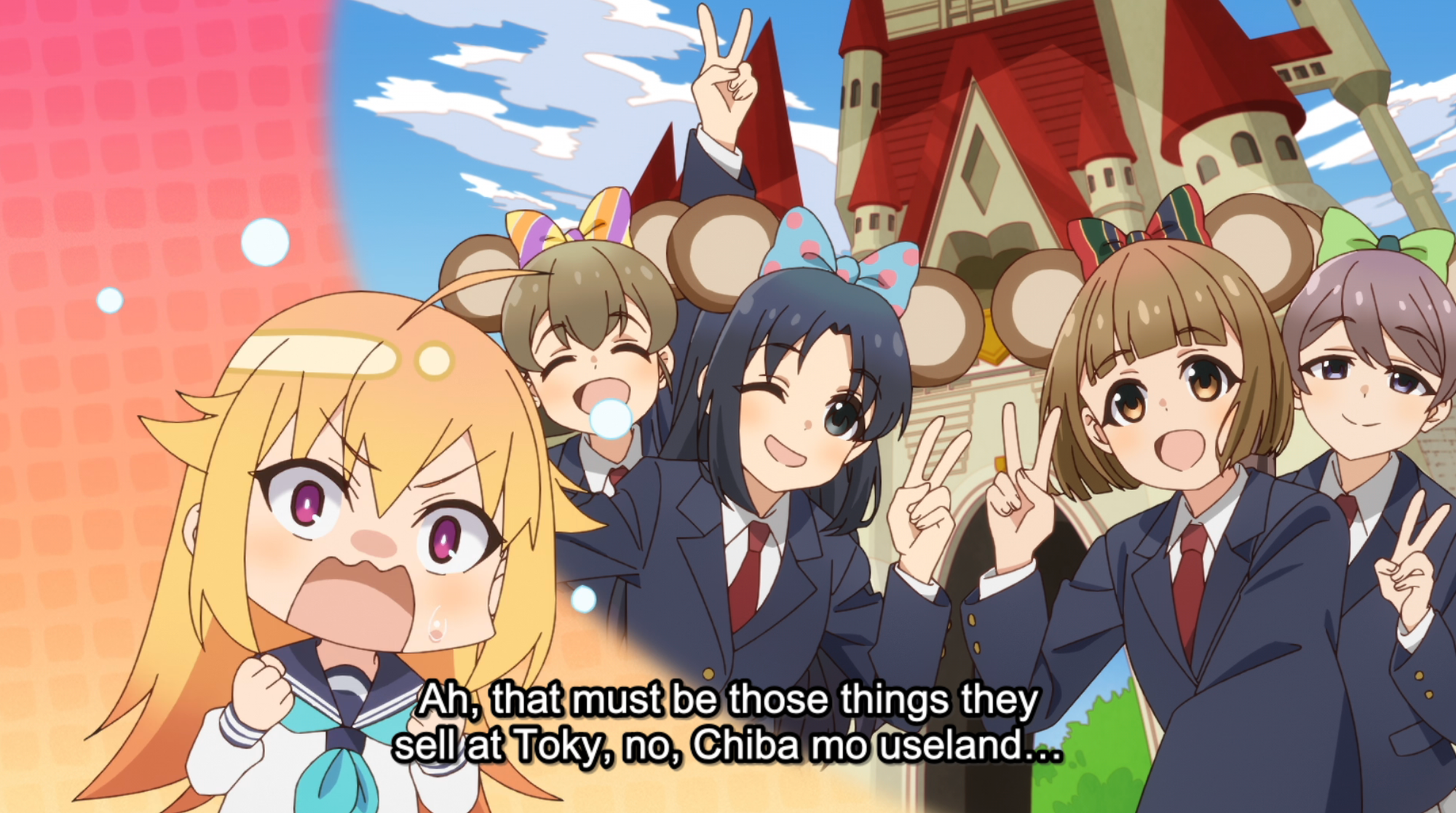
Ignoring the inadvertent space in mouseland for now (which we'll get to in a bit in the Grammar section), there are two jokes in the original line here: the most obvious one being that this is a Disneyland reference, but instead of referring to it as ディズニーランド (dizunii-land), they refer to it as ネズミーランド (nezumii-land). Dizuni and Nezumi sound very similar to each other, which is why the joke works, but nezumi is the Japanese word for mouse, being a tongue-in-cheek reference to King Mickey himself. This joke doesn't really come across well here by using "mouseland", unfortunately. A different reference to the theme park, either by its tagline (the happiest place on Earth) or referencing other parts of the Disney brand probably would have worked better here for the English-speaking audience. Unless, of course, you're talking about Canadian politics.
The second joke here is that Tokyo Disneyland is actually inside Chiba Prefecture, not Tokyo like the name would have you believe, and our protagonist corrects herself while pronouncing it. It's a fine joke, if not one that works way better in Japan than outside of it, but I don't mind its inclusion here. However, cutting off "Tokyo" without an em-dash doesn't really read nicely at all, and this probably should have been either the entire word or more obviously cut off.
The main takeaway here is that when translating humor, you've got to keep your target audience in mind and understand the types of references they will understand. There's plenty of other references in the script that probably goes over the average viewer's head, but a lot of those are either backed with visuals in the show itself or just crux to the script to the point where there's no getting around them.
Let's look at these next two lines, which appear back-to-back:
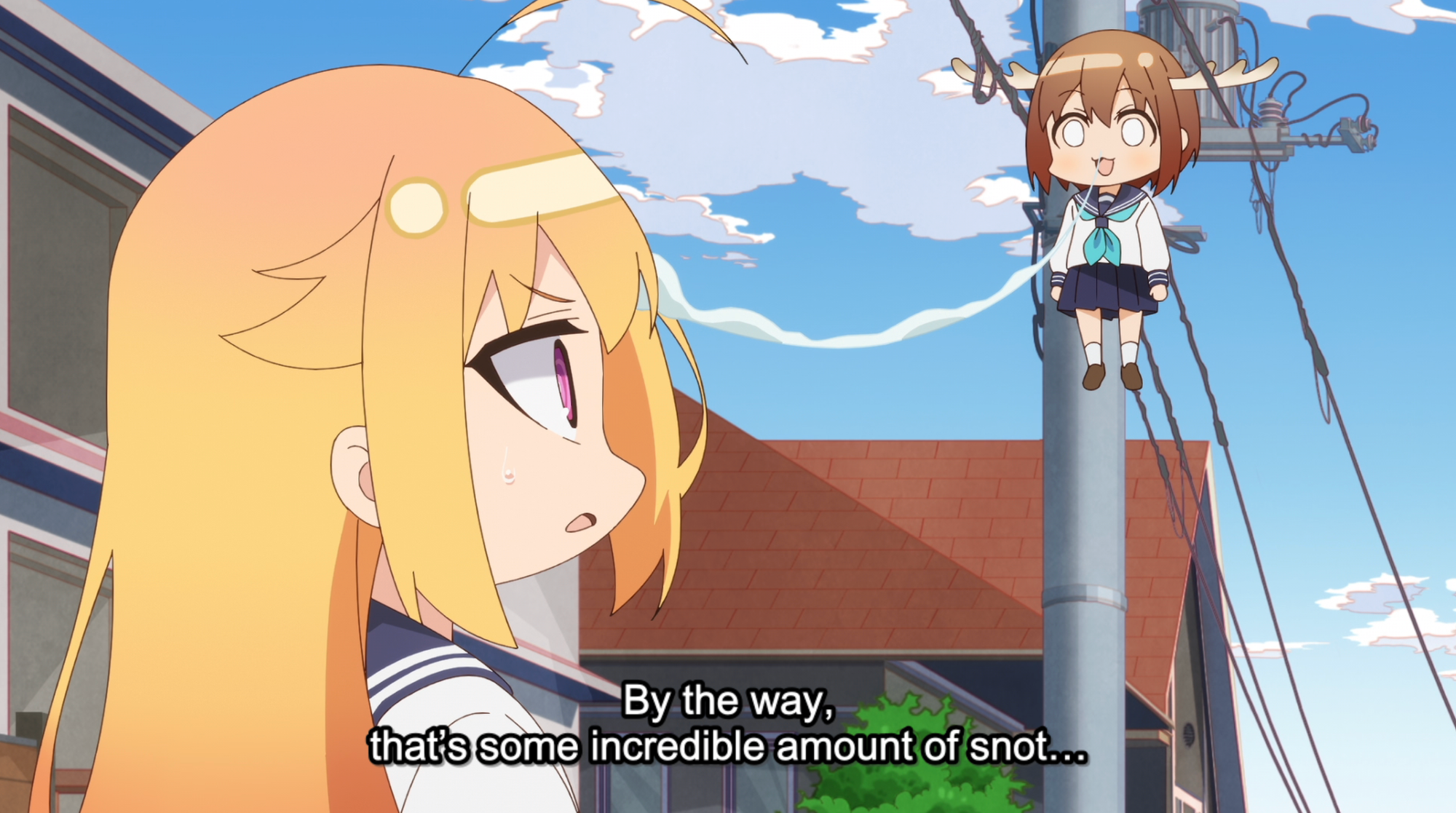
"By the way" implies that the main character is talking to someone here. For a show that has a lot of fourth-wall breaks (we get one in the first minute), not only is this just a mistranslation, but it could also be misinterpreted as her actually talking to us, the viewers. Using something like "Come to think of it," or "You know," or "Wow," would properly set the tone for それにしても without creating the issue of ambiguous audiences.
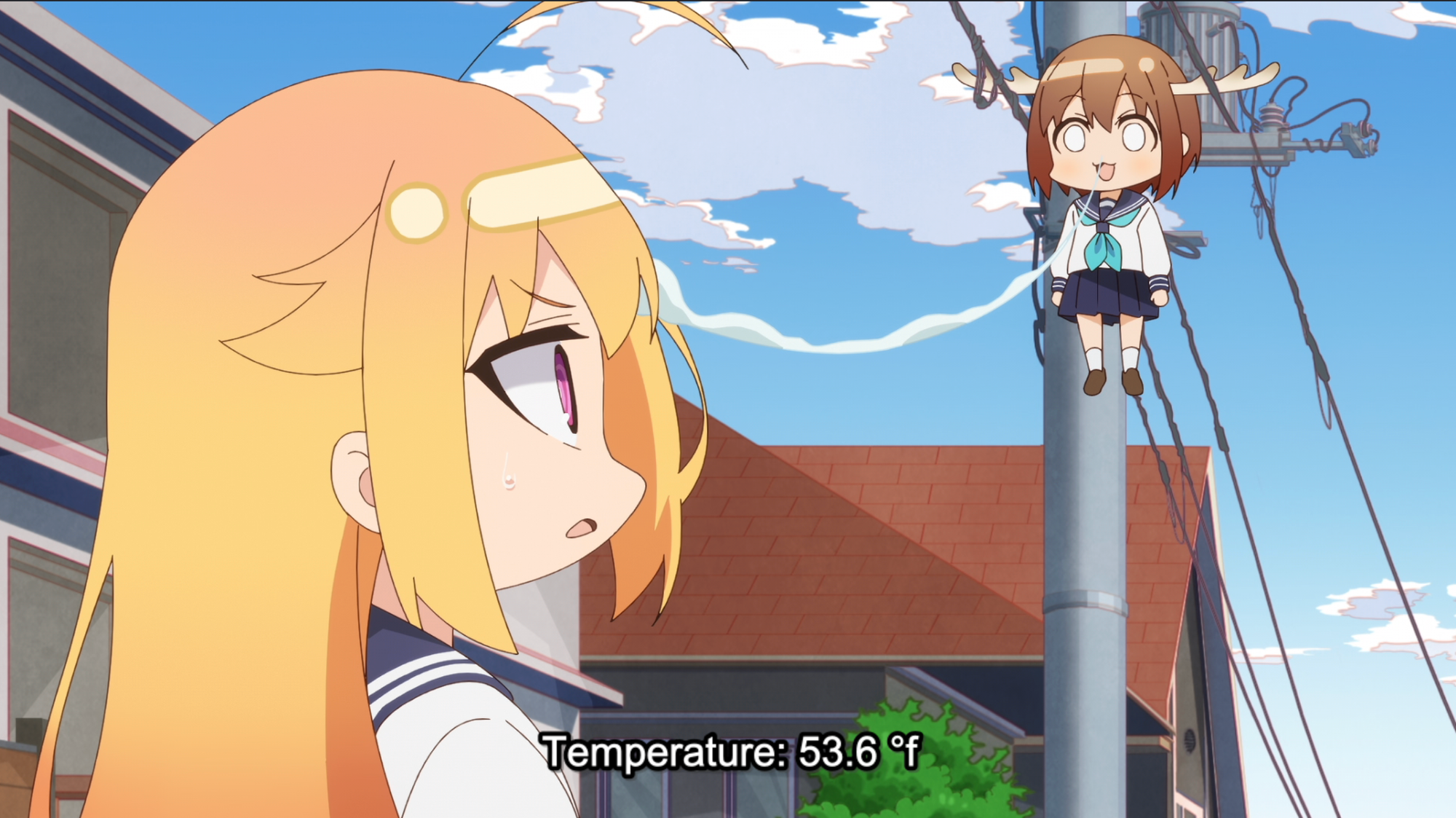
The subs don't make it entirely clear here, but this is a line by the narrator. And it feels completely out of place, because a) it's not a complete sentence, b) its purpose isn't entirely clear, and c) it comes out of nowhere to us, the viewer.
While I do appreciate the conversion from Celsius to Fahrenheit (happy 4th of July! USA USA USA), the fact that we have an exact decimal point in the reading makes it painfully obvious that this was just a direct conversion from a raw centigrade reading. What weather forecast in the states gives you decimal point-level accuracy? There's also a minor nit in that 気温 refers to air temperature - having this line just be "Temperature: 53.6°F" makes it ambiguous what the temperature is. It very well could be the temperature of her snot, but we wouldn't know any better. (Also, c'mon guys – you have to at least give me a closing period. Make complete sentences!)
Just put it as "Current conditions: 54 °F." and call it a day. Or 12 ℃ if you like your metric.
For this next example, I want you to read the subtitles by themselves, and see if the joke makes any sense at all to you.
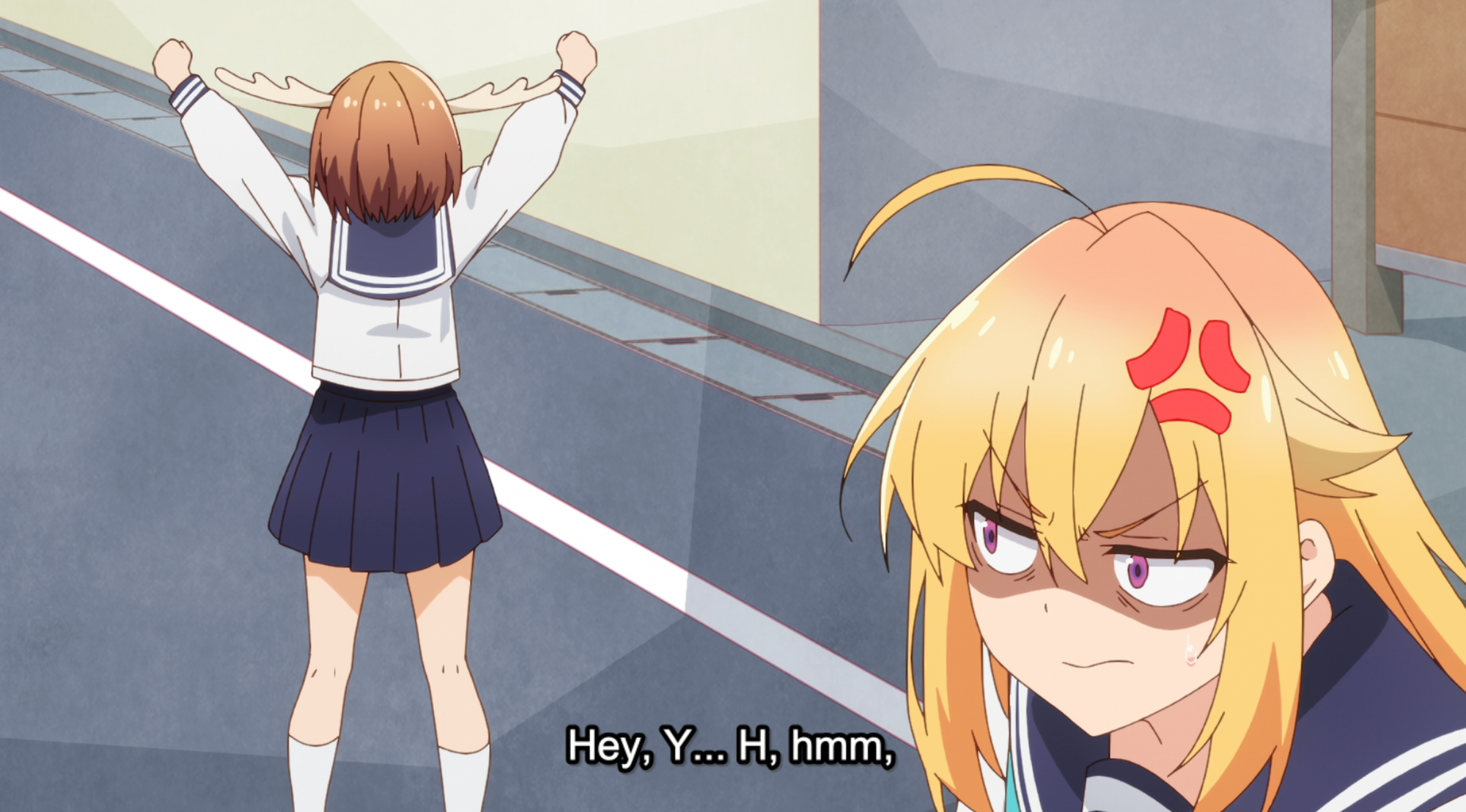
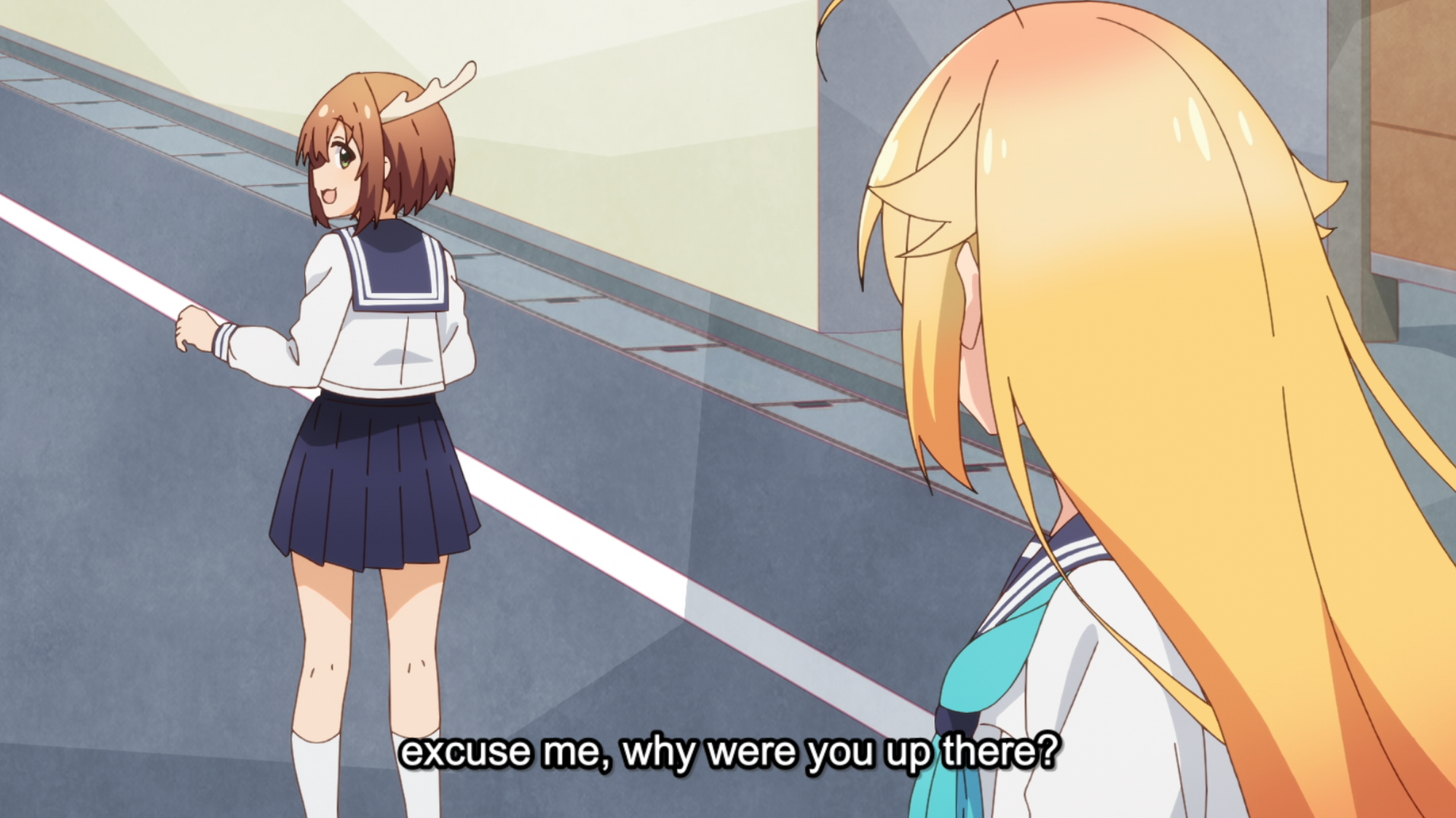
Anyone who put their hand up can put it down now, since you're very clearly lying. "Hey, Y... H, hmm," is not coherent. The intended joke here is that Koshi, the blonde girl, instinctively tries to talk to the deer-girl in an aggressive manner before realizing that it breaks her honor student image, resulting in her changing her tone before starting the sentence anew. That's not captured in the subtitles at all. This is low-hanging fruit when it comes to localization accuracy - a simple "Okay, you little—" or something similar to properly reflect the more aggressive starting tone would go a long way here.
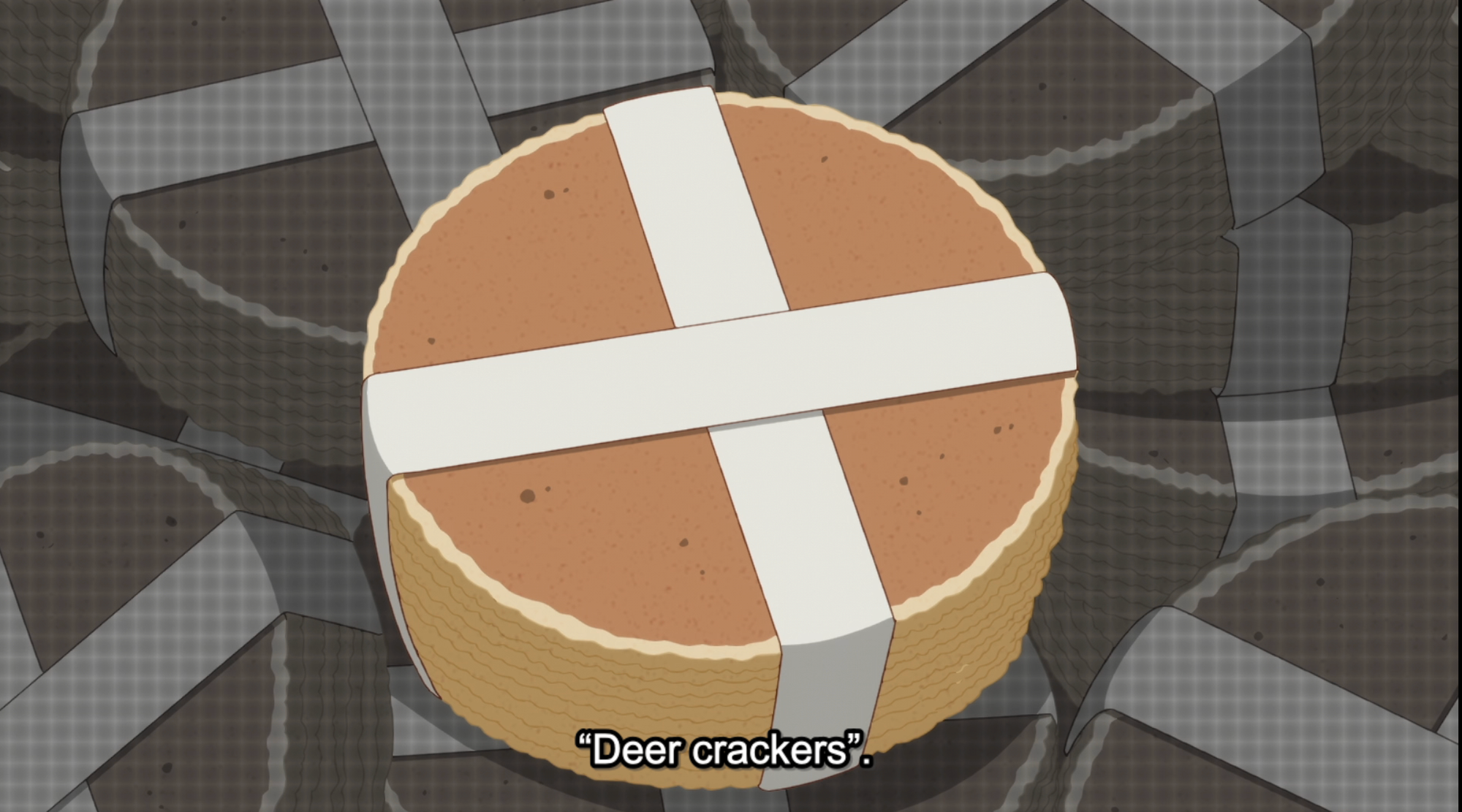
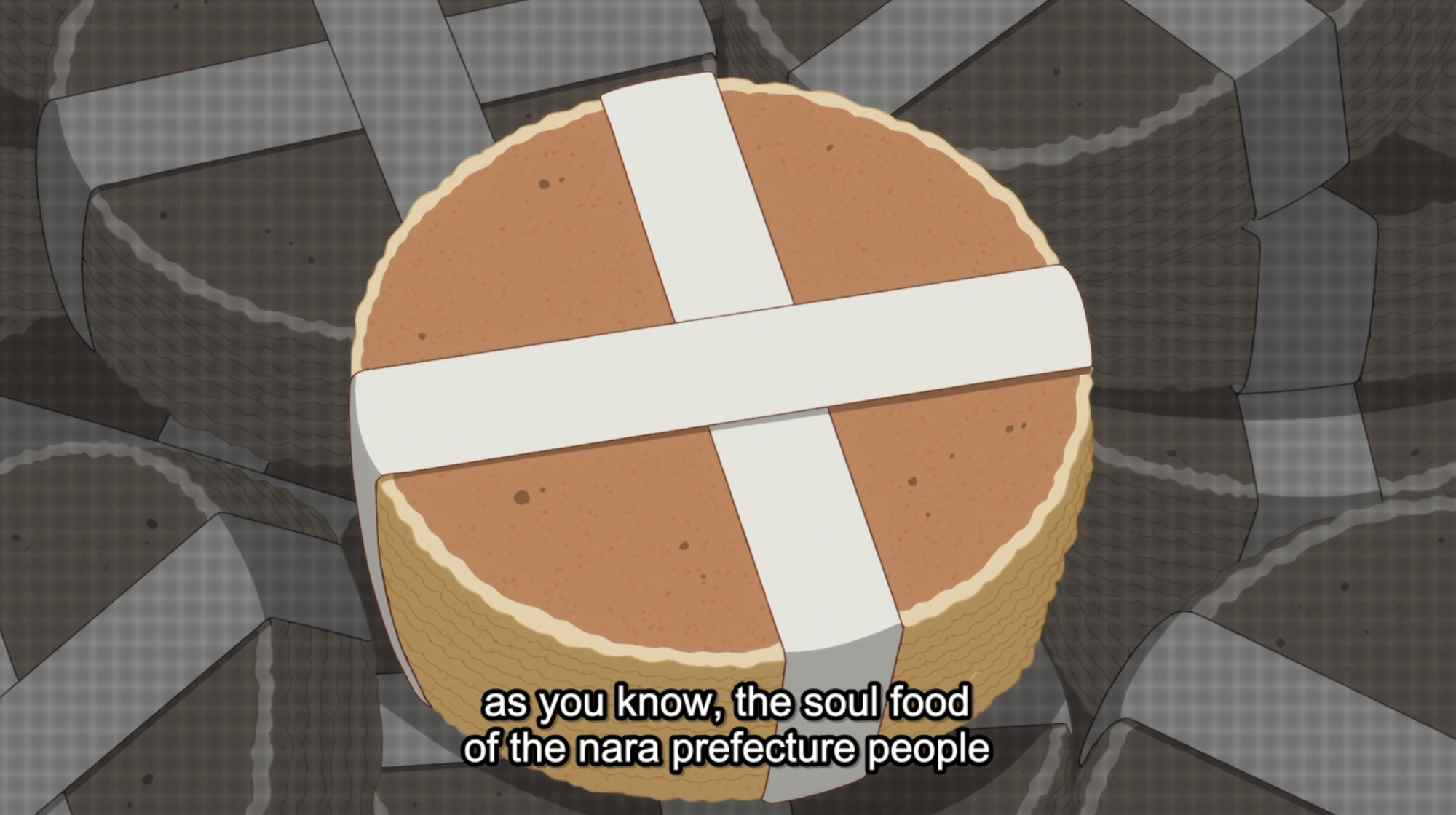
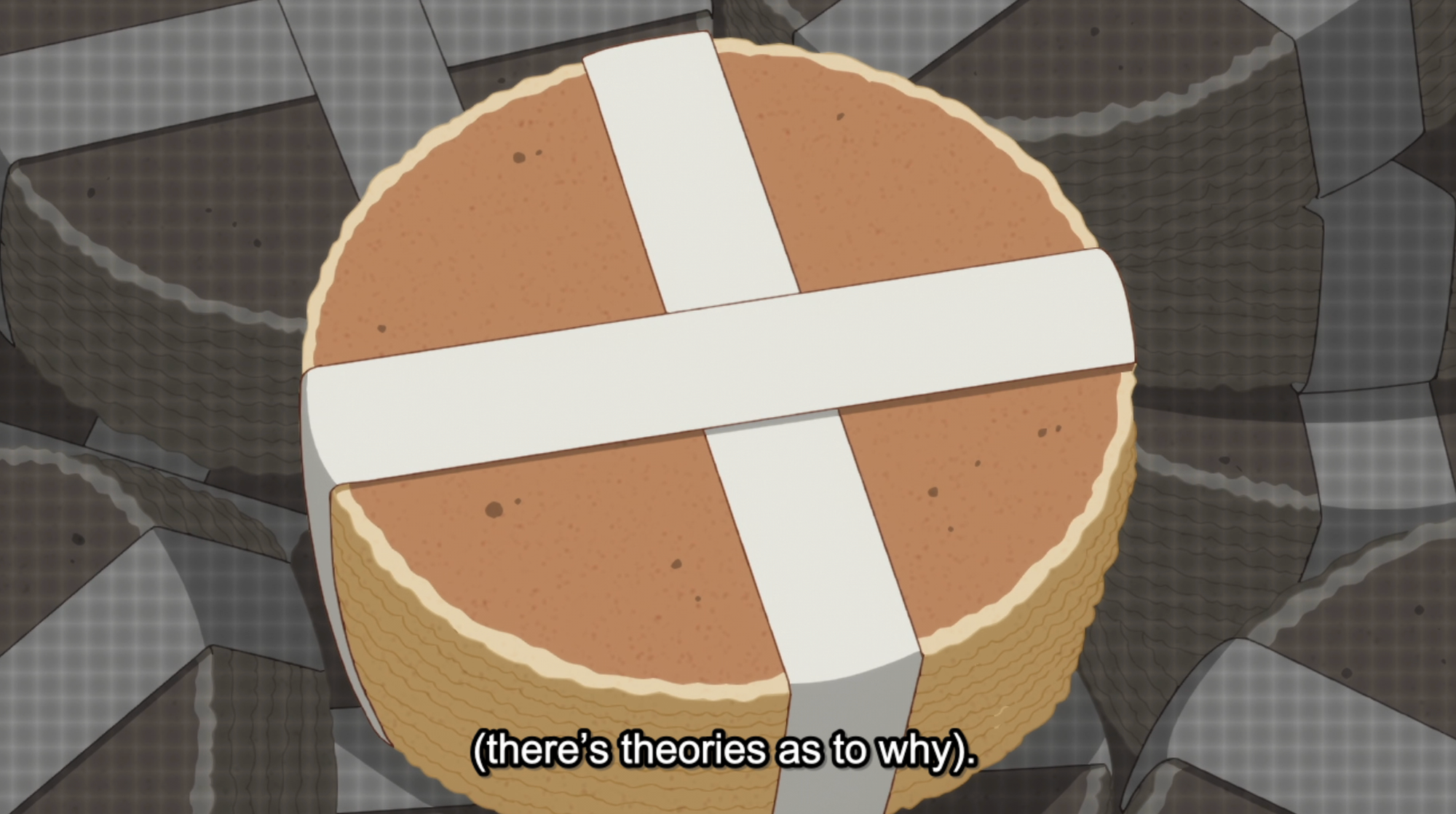
Okay, we just have to talk about this line. The full line is 鹿せんべい。ご存じ、奈良県人のソールフード(諸説あり)。Using "As you know," for ご存じ in this context is a bit debatable (it's probably better as "Commonly known as" in this context), but the crime here is translating "諸説あり" as ”there's theories as to why". 諸説あり means you are positing an opinion, and that opinions may vary. "As to why" implies that the opinion is correct and the theories as to why are around why it's correct, not whether it's correct or incorrect, which is not what the line means here. "Opinions may vary." or "The above is unconfirmed." is a more accurate and better translation - dropping the ball like this dynamically changes the whole perception of the line.
There's also a whole different can of worms around the parentheses in general. This script isn't shy of using the pronounced word カッコ (or 括弧 if you want to be pedantic) to refer to a parenthetical idea, as the screenshot isn't the only time in the script where this happens. This is most commonly seen in other texts as (仮) to refer to something as a beta or incomplete, but the core pattern of wrapping something in parenthesis but pronouncing the parentheses with カッコ is the same. There's a solid argument that the parentheses themselves shouldn't actually be present in spoken text, preferring to express the idea through sentence structure instead, as seeing random parentheses in lines is jarring to the viewer.
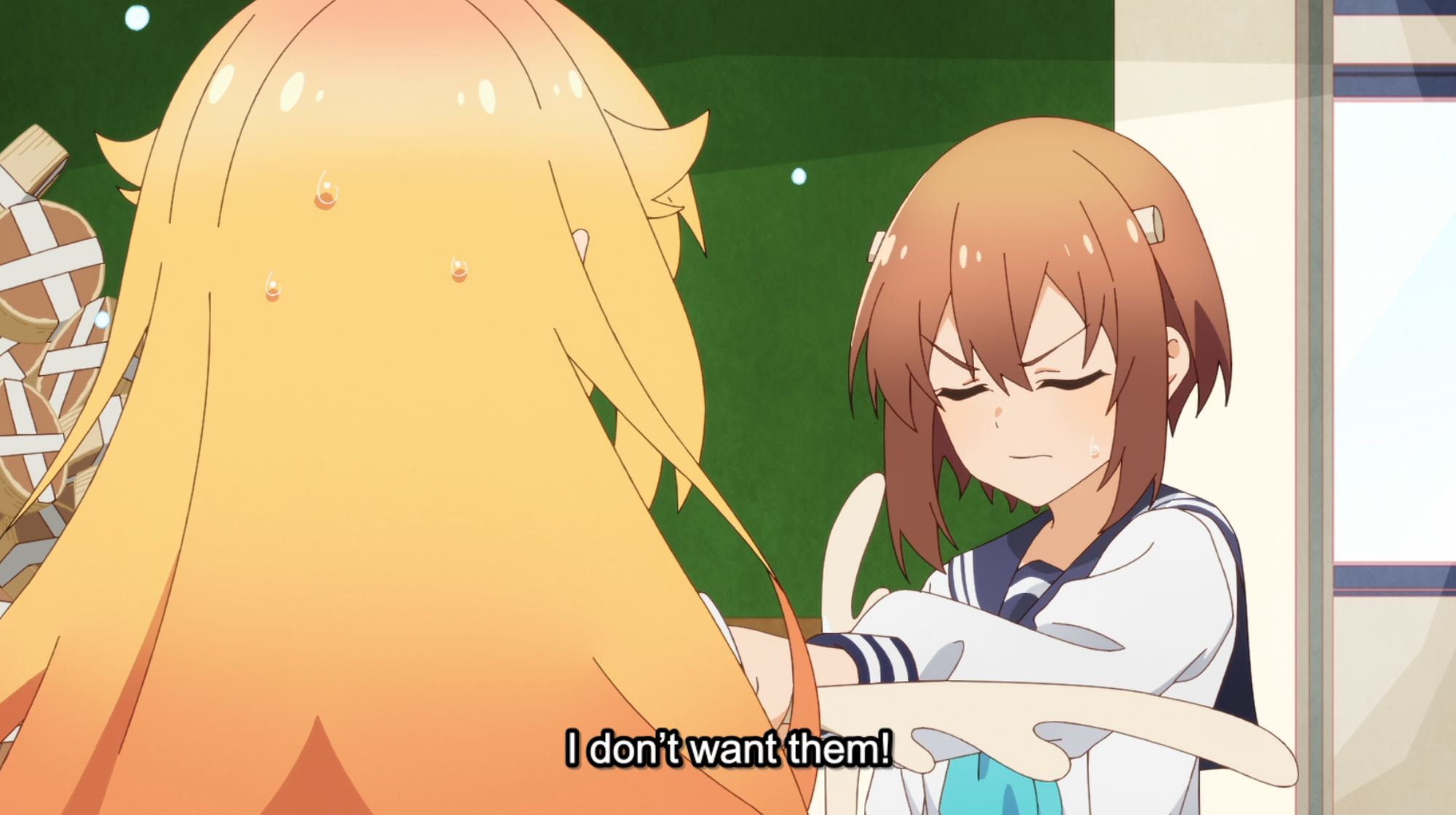
This is a more minor critique compared to some other lines, but the joke here isn't that she doesn't want them - it's that Nokotan has already offered her a horn before offering her another one, and she's already refused it once. The line here should probably be "I still don't want them!" or something.
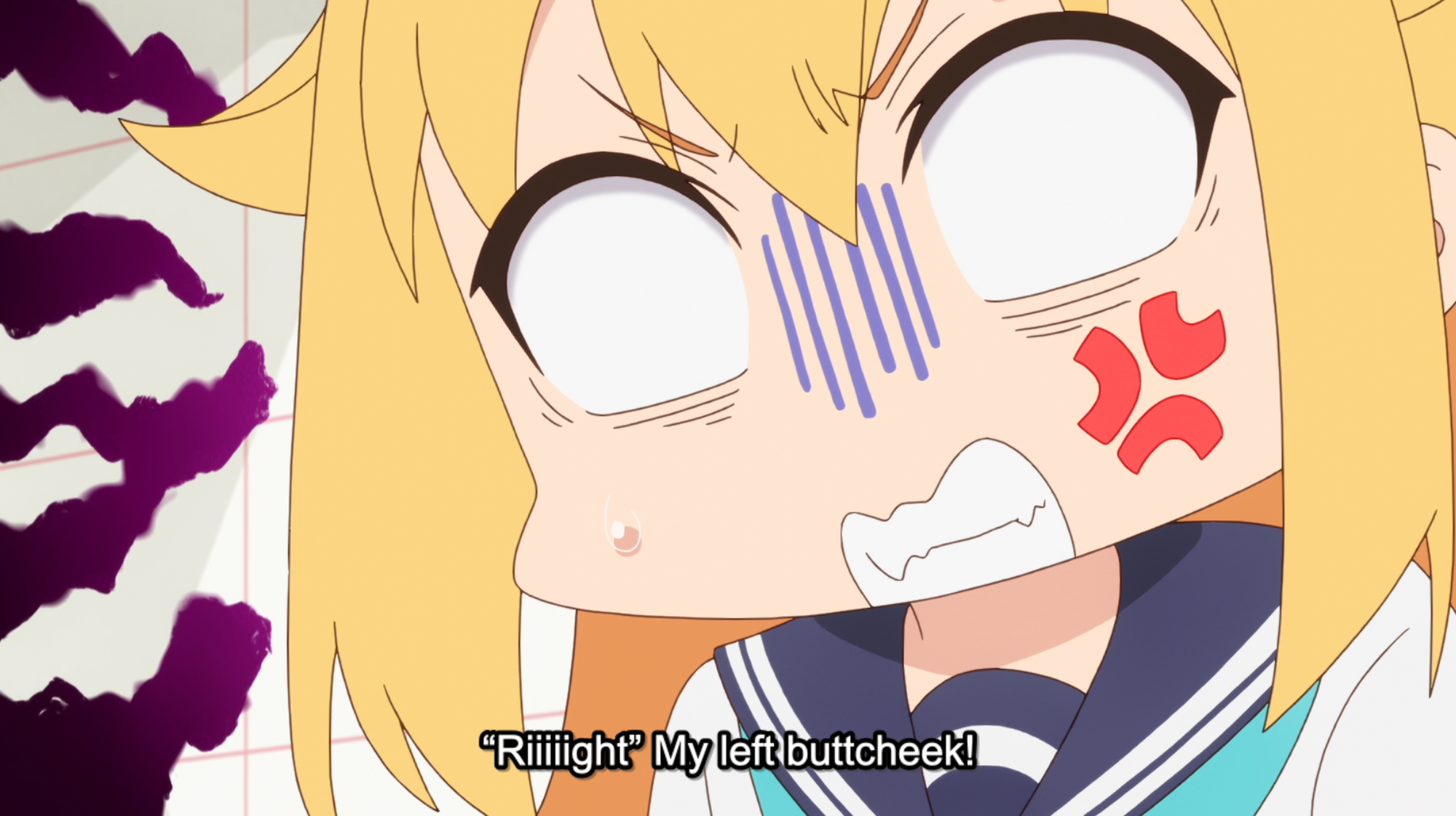
I get that this is a comedy show, but sometimes this script tries too hard to be funny, with the above being a prime example of this issue. There's nothing in the line that implies that this should be translated like this. If you're gonna force some humor, do it where there are actual puns around - like when she says もう仕方がないな!
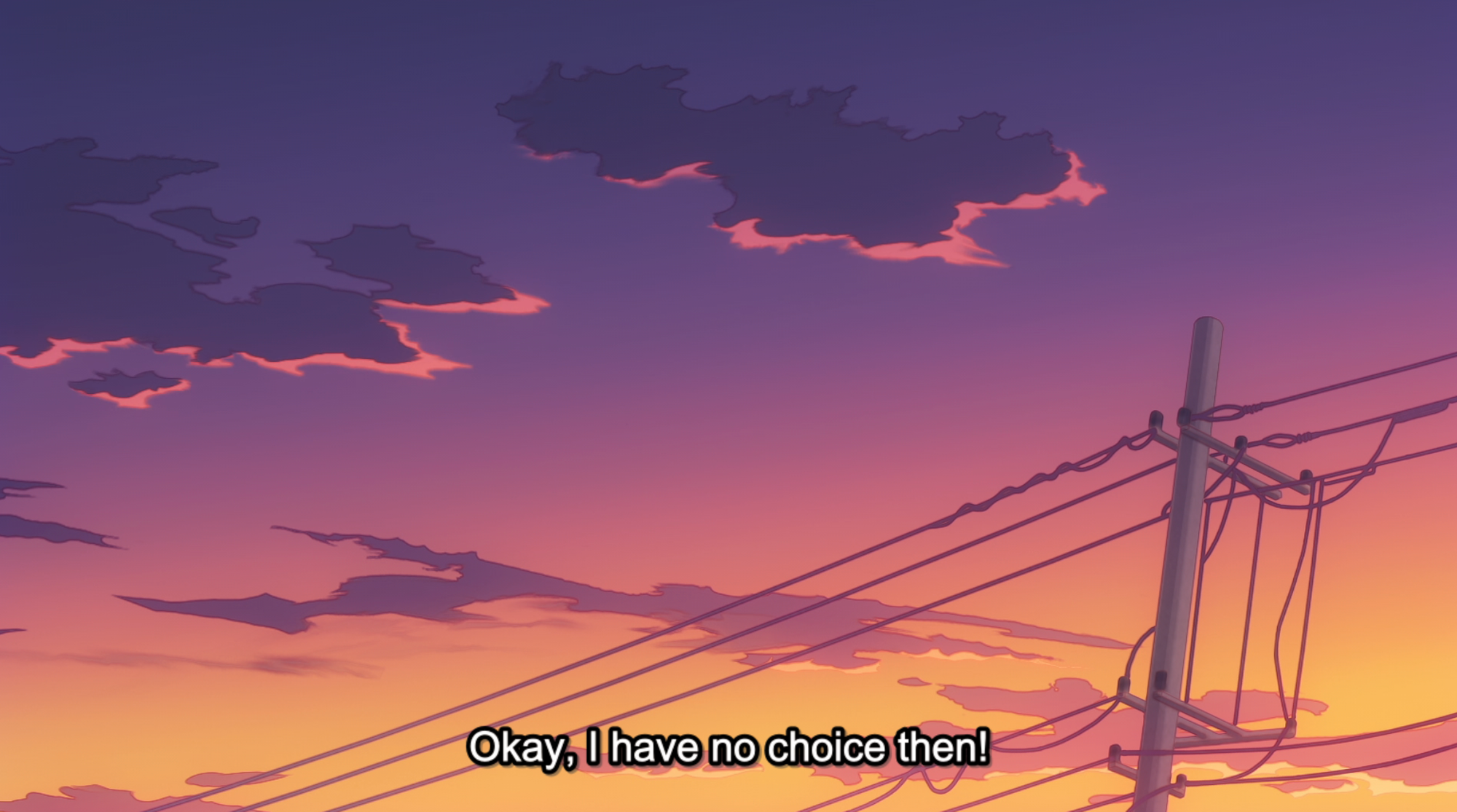
Especially if you're not going to try to translate these other jokes.
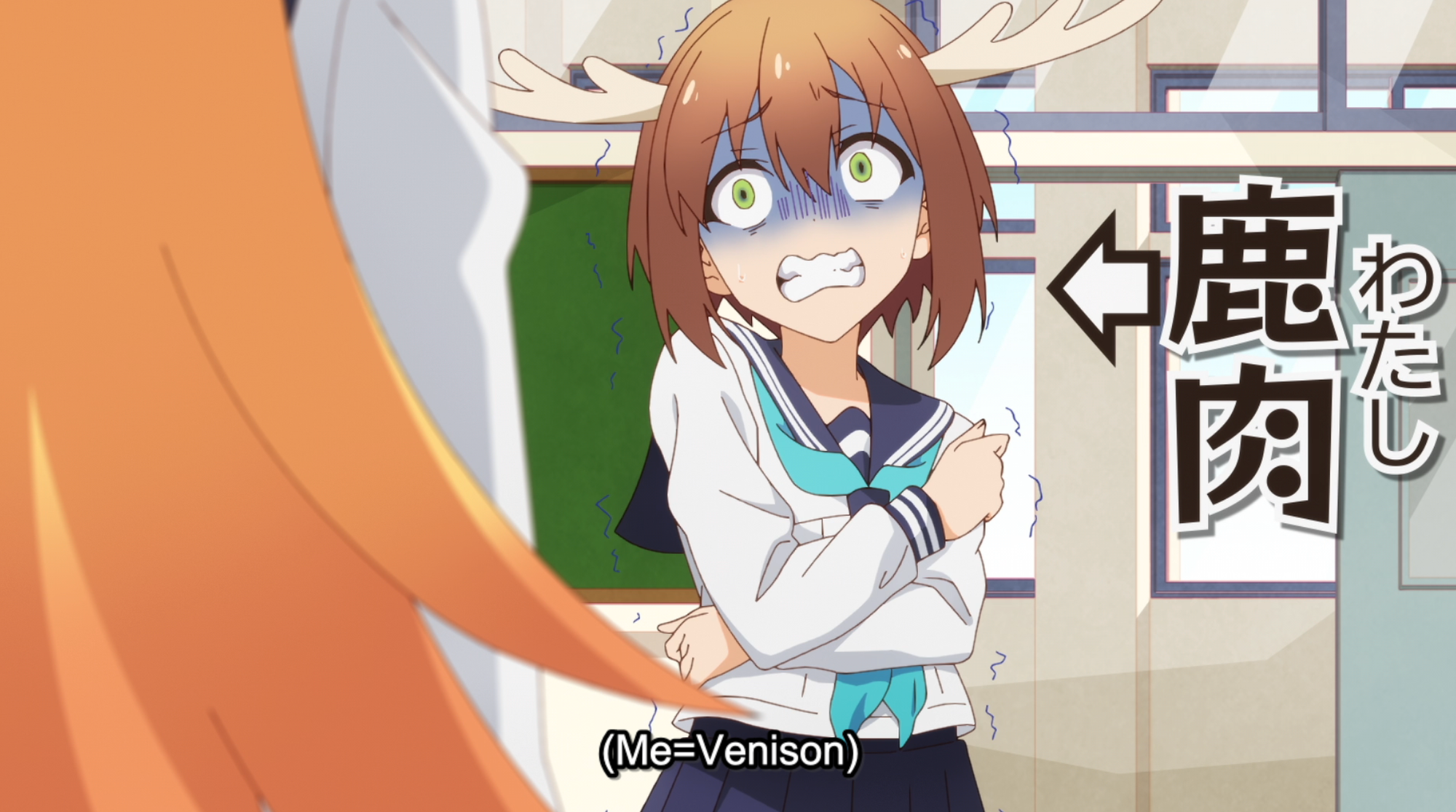
Oh, and one last thing.
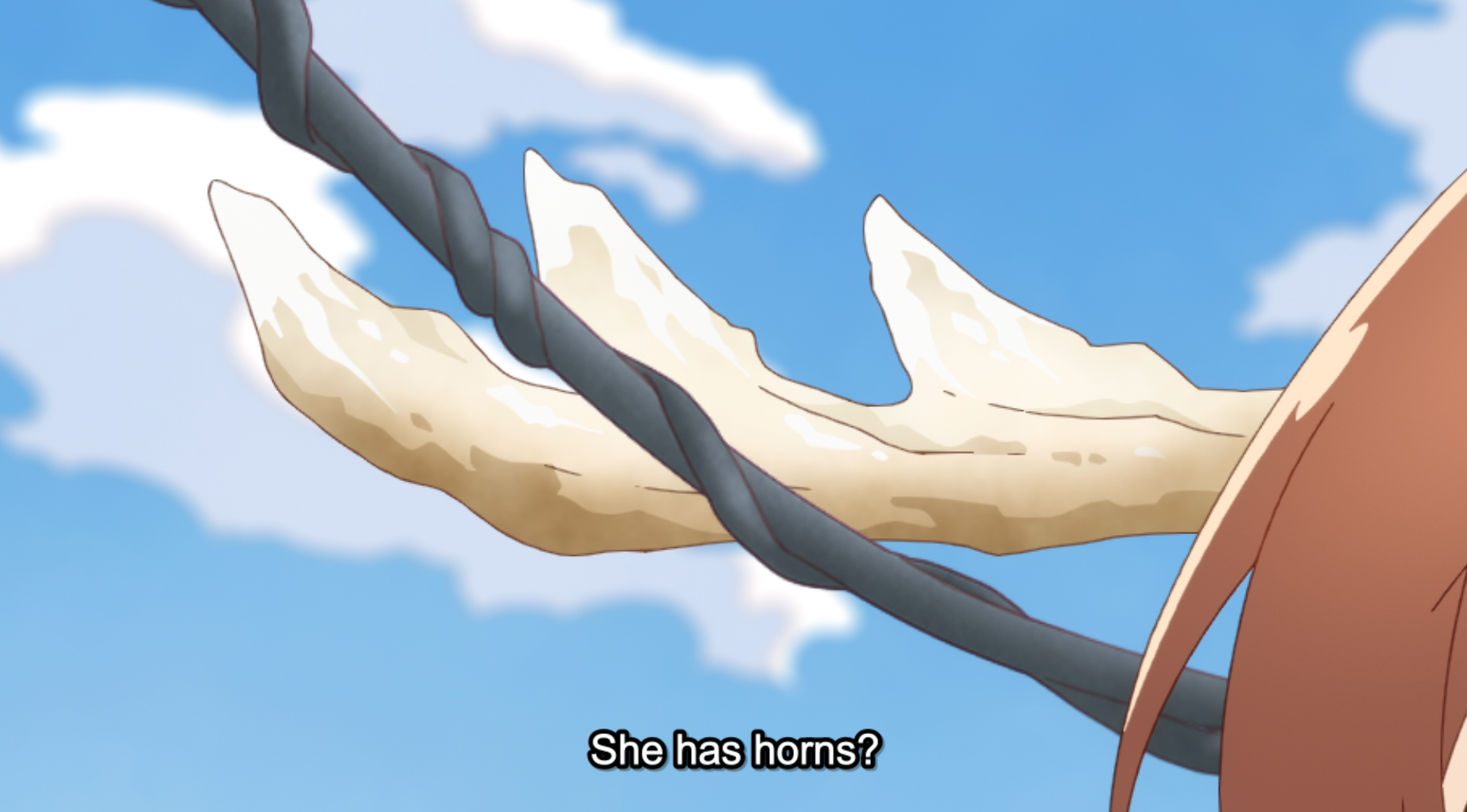
Deers have antlers, not horns.
Timing
For a comedy show like Nokotan, you have to get the timing right. After all, comedy is all about timing. In other words, the ebb and flow of dialogue is absolutely crucial in shows like this. Punchlines need to be short and succinct, set-ups need to pull their weight, and the script in general needs to not overbear the viewer with the concept of reading – too much reading required over a short period of time will pull your viewer out of the experience as they try to play catch-up with the script.
Unfortunately (but unsurprisingly), Nokotan fails at this. Take these two lines, back to back:
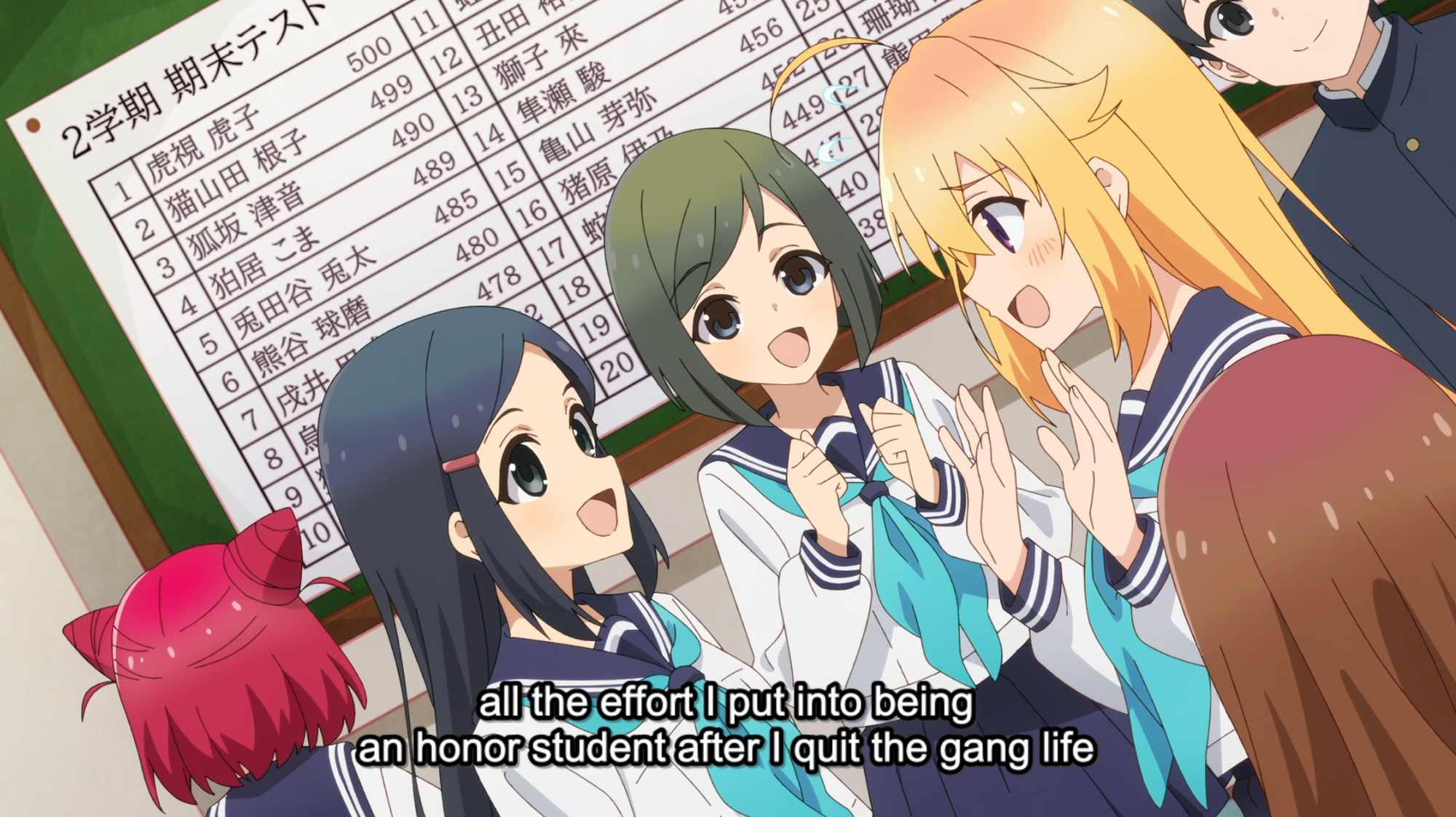
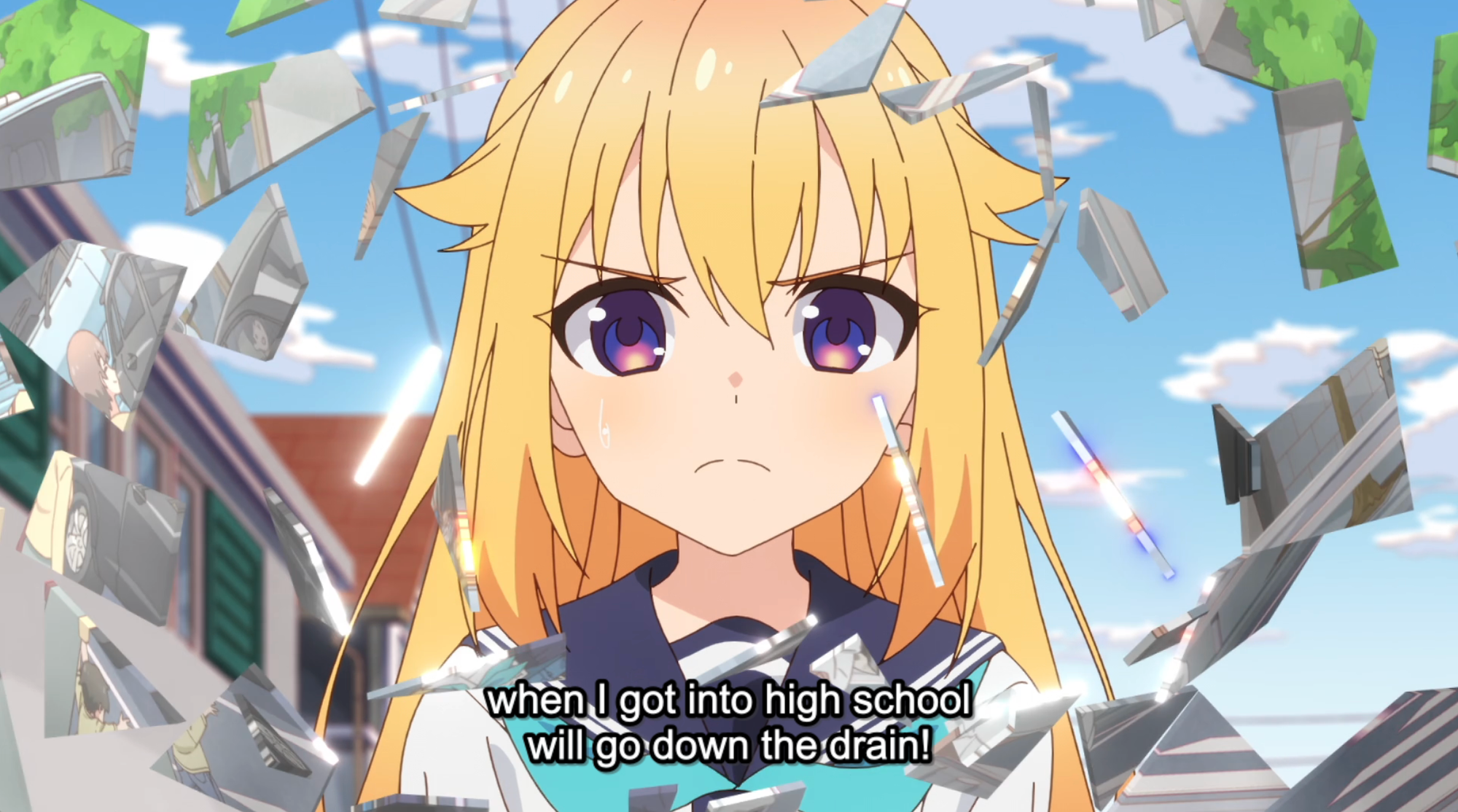
There's no hard-and-fast threshold for this, but a good measure of timing can be based around how fast the average adult reading speed is (somewhere in the range of 200-300 words per minute, or between 3.3-5 words per second), and comparing it to what's being asked of the viewer here.[1] For the first line, you're looking at 16 words over 3.5 seconds for a required reading speed of 4.5 words per second: still in our range threshold, but near the upper echelon. The second line requires a whopping 6.875 words per second, which is the technical term for "you probably won't read it fast enough before it disappears". As a viewer, then, I'm left with the option of either a) pausing or rewinding to try to finish reading the sentence, or b) continuing without fully reading what that line was. Either option negatively impacts the viewing experience, since you're being taken out of the zen state of viewership to try and play catch up due to the script's lack of readability.
To be fair, this isn't always avoidable, and some lines are just long and complex because they have to be! But this isn't one of them: you can easily reword this sentence to be shorter, potentially taking advantage of the fact that "being an honor student" and "when I got into high school" are somewhat redundant concepts to the viewer. A translation like "all the effort I've put into cleaning up my image in high school / will go down the drain!" can also take advantage of the fact that the script doesn't necessarily need to highlight every detail of the line; inference on behalf of the viewer on what a character is talking about (in this case, her delinquent past) often makes for a more natural script and more succinct dialogue - we didn't mention anything about the "gang life" in the new translation, but as the viewer, you knew exactly what the line meant.
This is another example of how these pillars of subtitling interact with each other. Let's look at our next example, which shows some issues with sentence splitting:
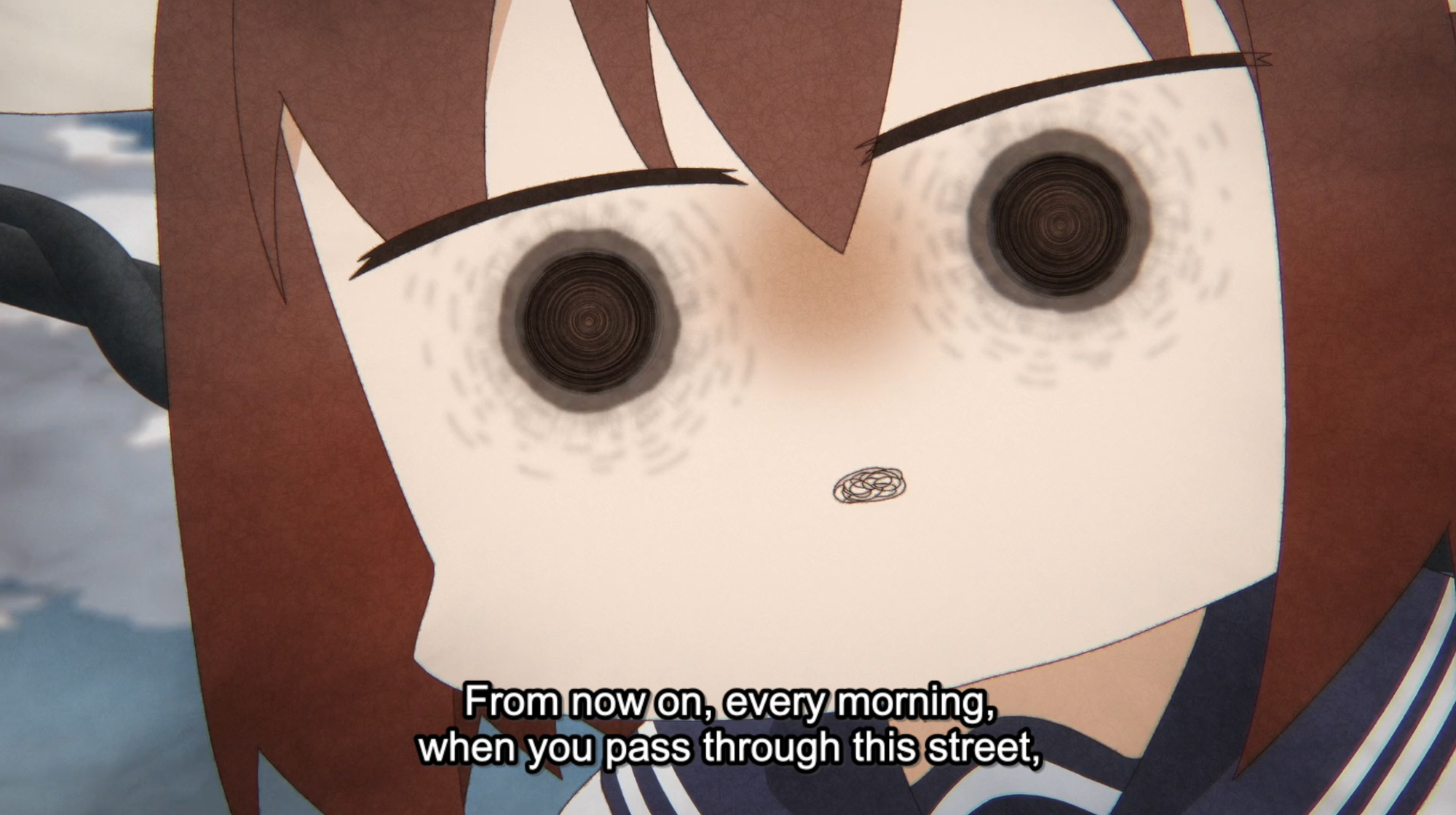
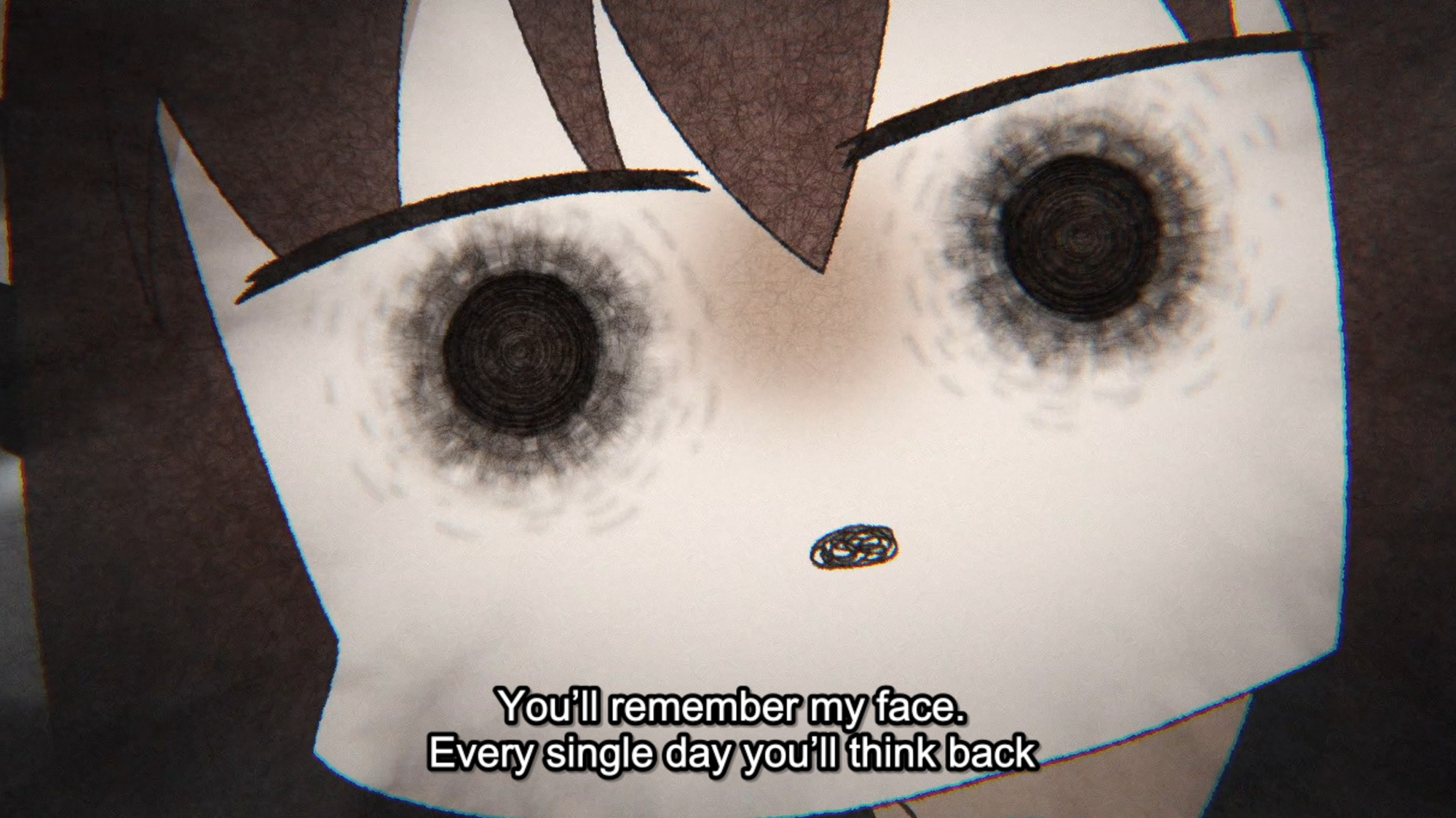
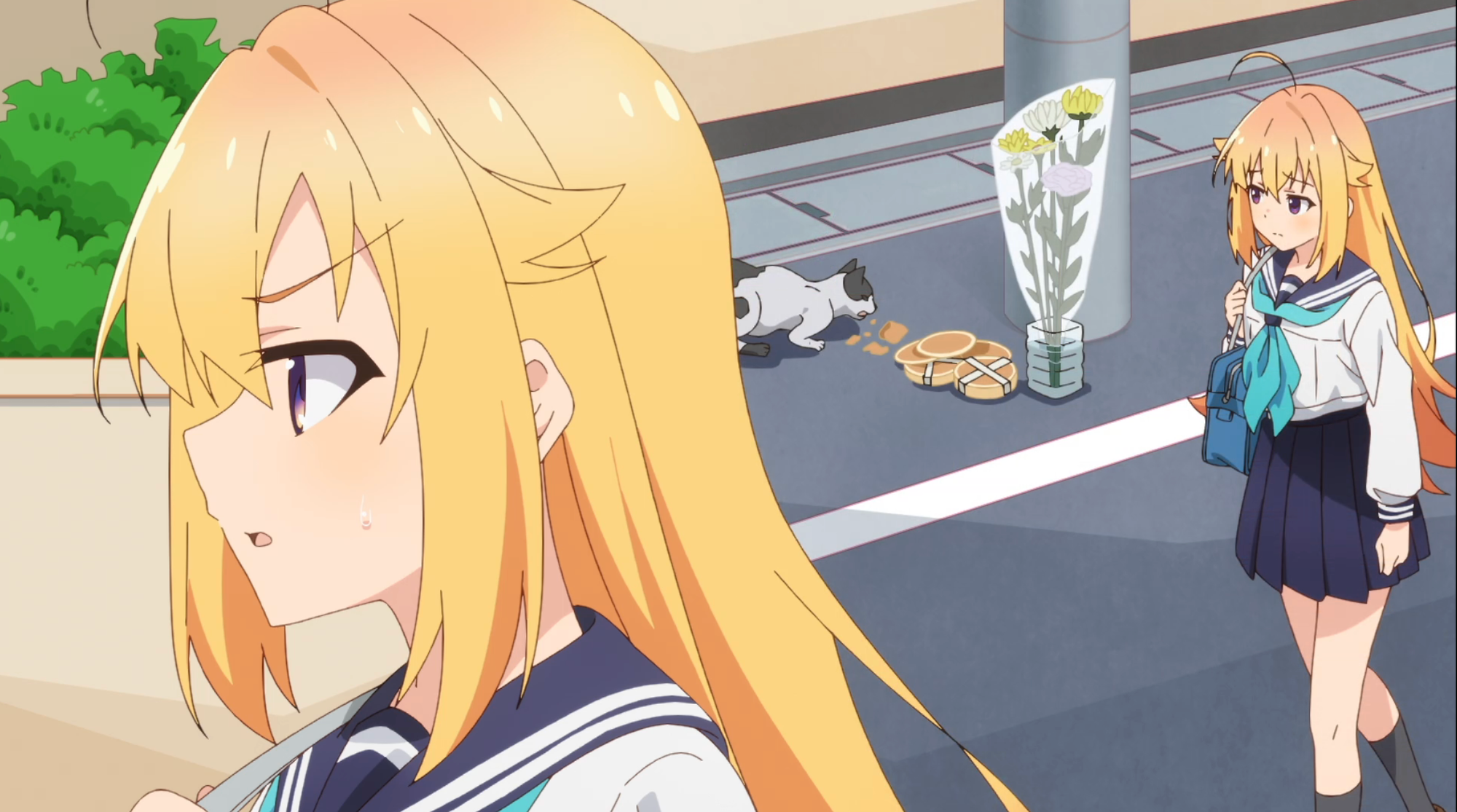
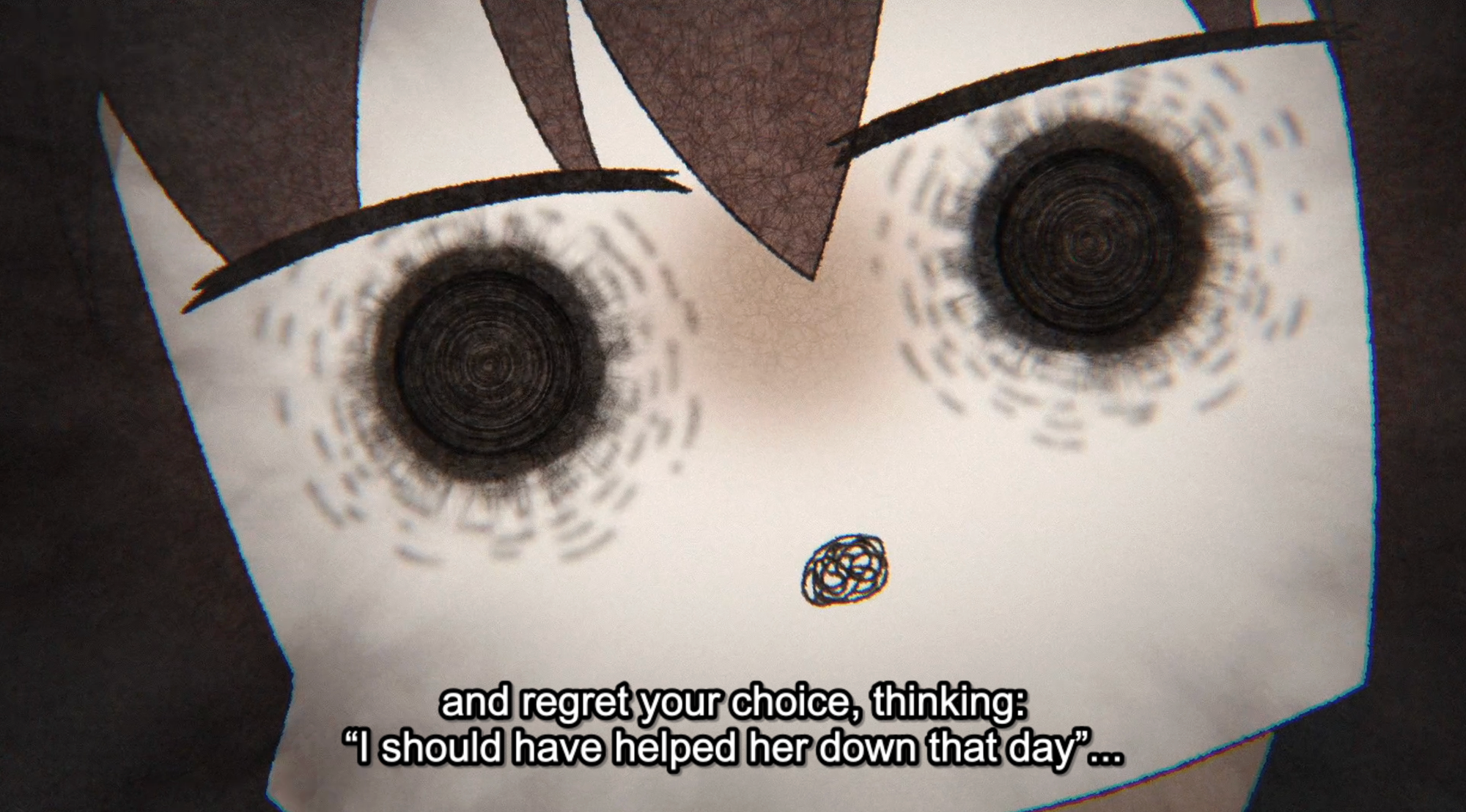
Ignoring that capital letter after a comma for now. Let's talk about partial sentences! Oftentimes in a script, if someone's sentence goes on for too long, the subtitles will need to split up that sentence across multiple lines, creating partial sentences. These partial sentences create turbulence in the viewing experience because they leave the viewer hanging, since they're often waiting for the rest of the sentence to appear and the idea to conclude. This can be good for creating tension or suspense, but in cases like this, where it's only present because the line is complex, it instead creates strain more than anything else.
There are two partial-sentence cardinal sins committed here, unfortunately. The first of which is the second image, which contains both a sentence finishing and a new partial sentence started in the same line. As a viewer, seeing the first line completed but having to start a new mental model for a new partial line makes reading the line way more complex. This is a classic example of bad editing and timing; it could have easily been rewritten to avoid this.
The second cardinal sin is between images 2 and 4. There's an entire second between when that line disappears and the next line with the conclusion shows up where there's no text. It's probably correct for there to be no text, since there's no dialogue, but when seeing a blank subtitle, a viewer's mind will forget the context the previous line has built up, even if there's a partial line still hanging - or at least, make it harder to remember what it read.
The crazy part is that there's no reason for that second trailing sentence to exist. "From this day forward, every morning as you walk down this street, / you'll be haunted by my face. / You'll be cast in a sea of regret over how you should have helped that girl..."
I get that this kind of art is a bit hard to grok without seeing the audio, but maybe this next set of lines can explain just how bad some of the sentence splitting is:
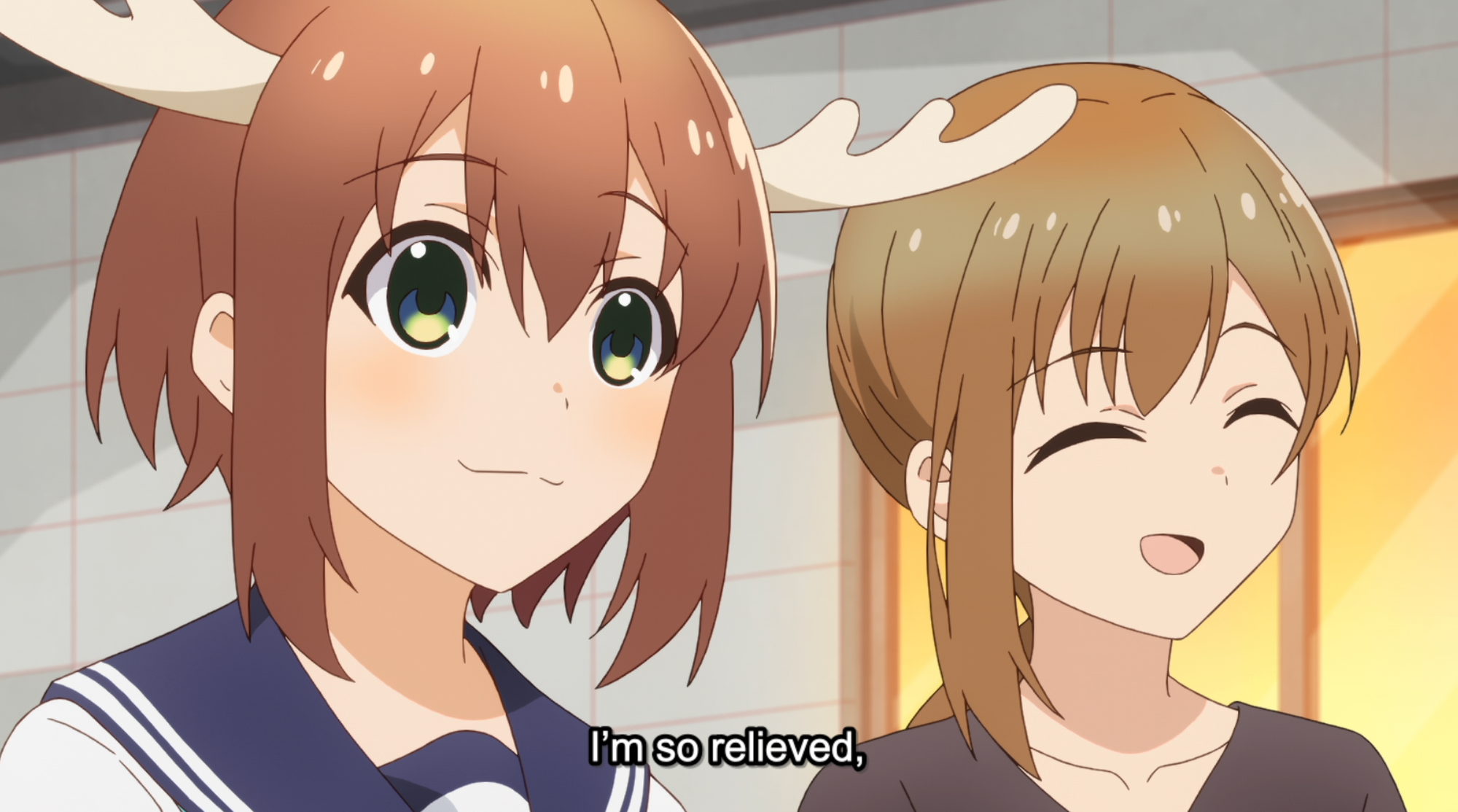
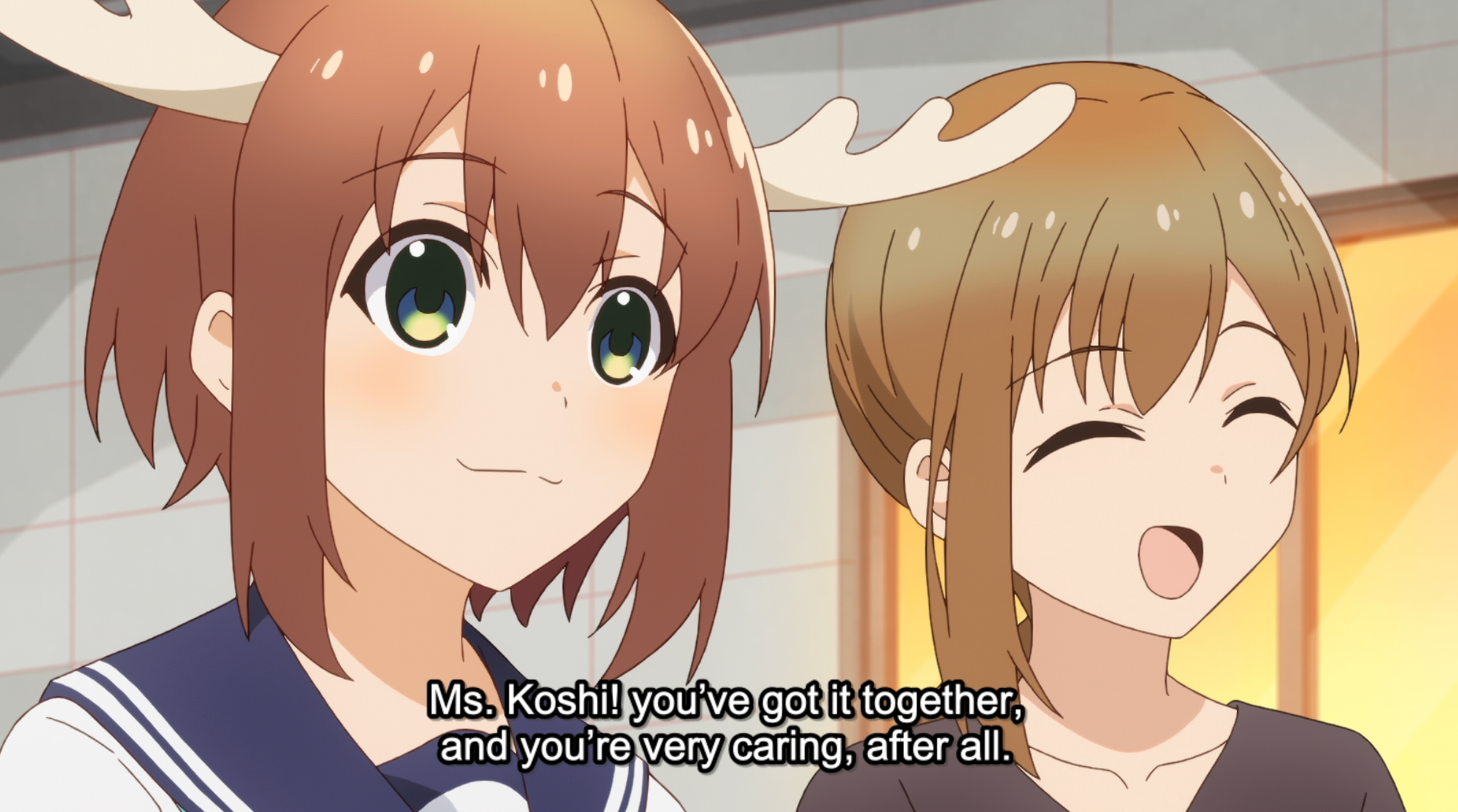
Grammar
This is probably the most objective of the three pillars. People will argue over localization style and the right way to translate or split a line, but it's less often you'll see people defend bad grammar. This also makes it the most obvious of the three to point out, and boy howdy, is there a lot to point out. We've already seen plenty examples of this in some of the other screenshots, but here are some more.
We've got inconsistent stuttering strategies:
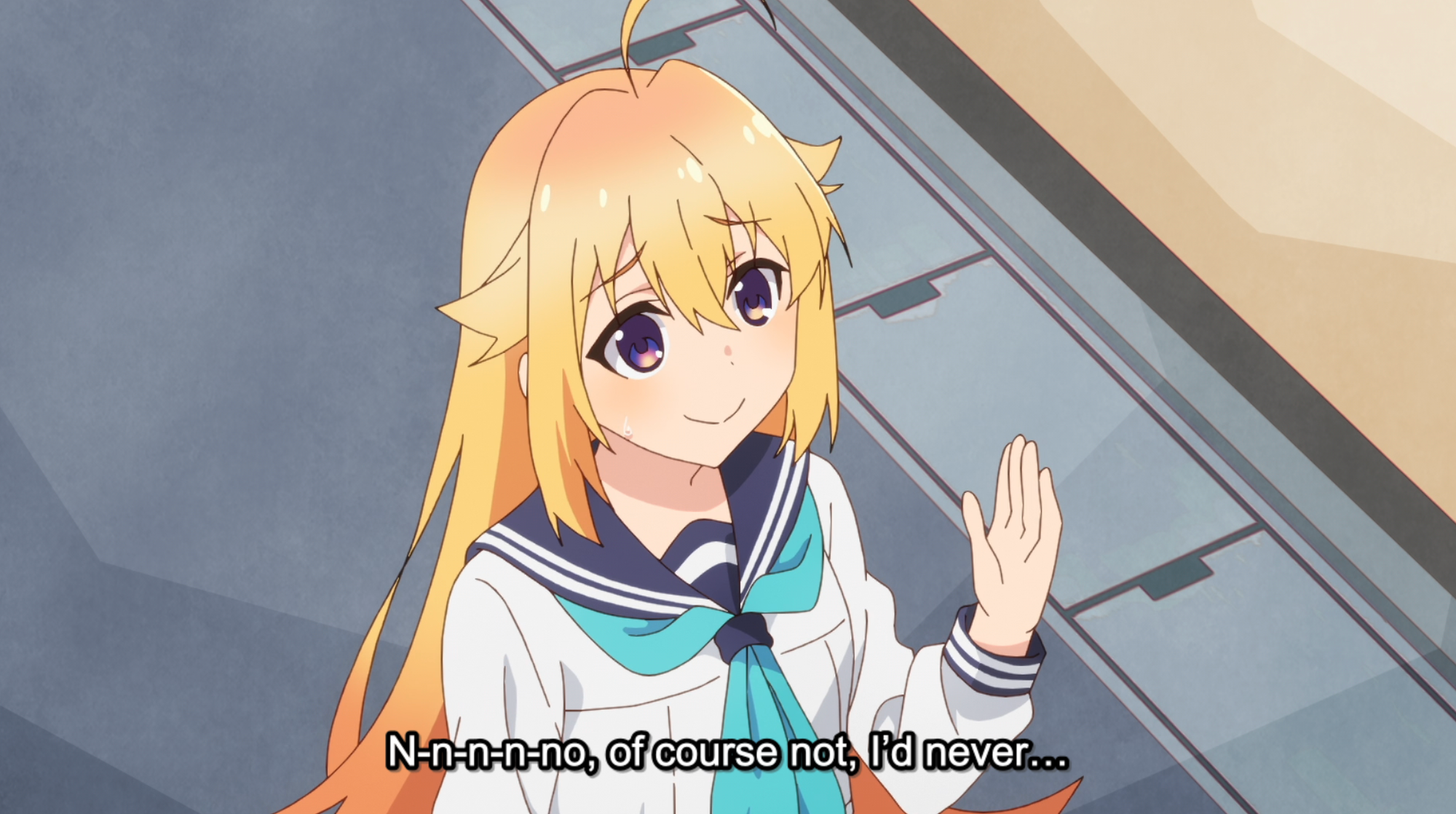
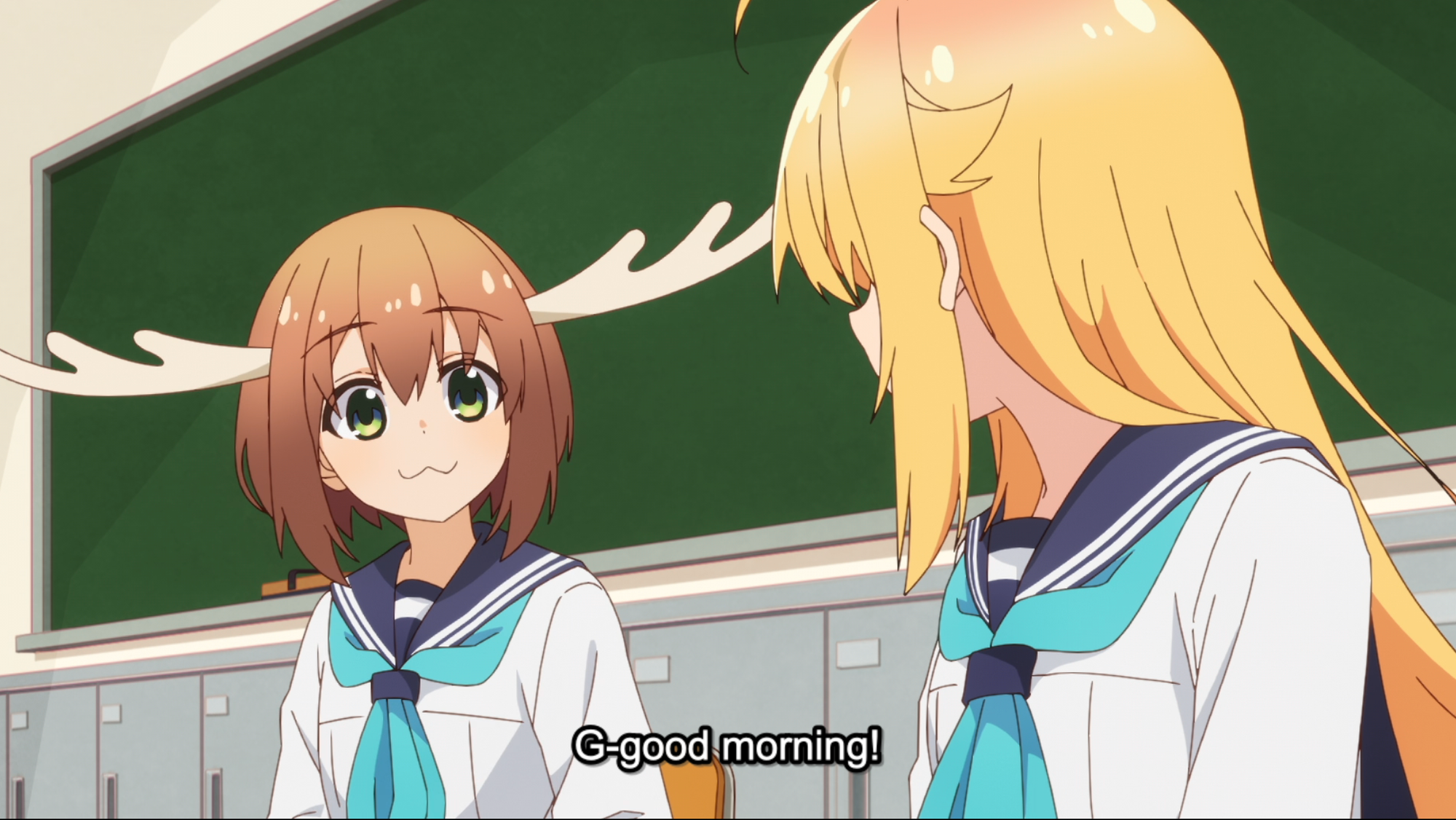
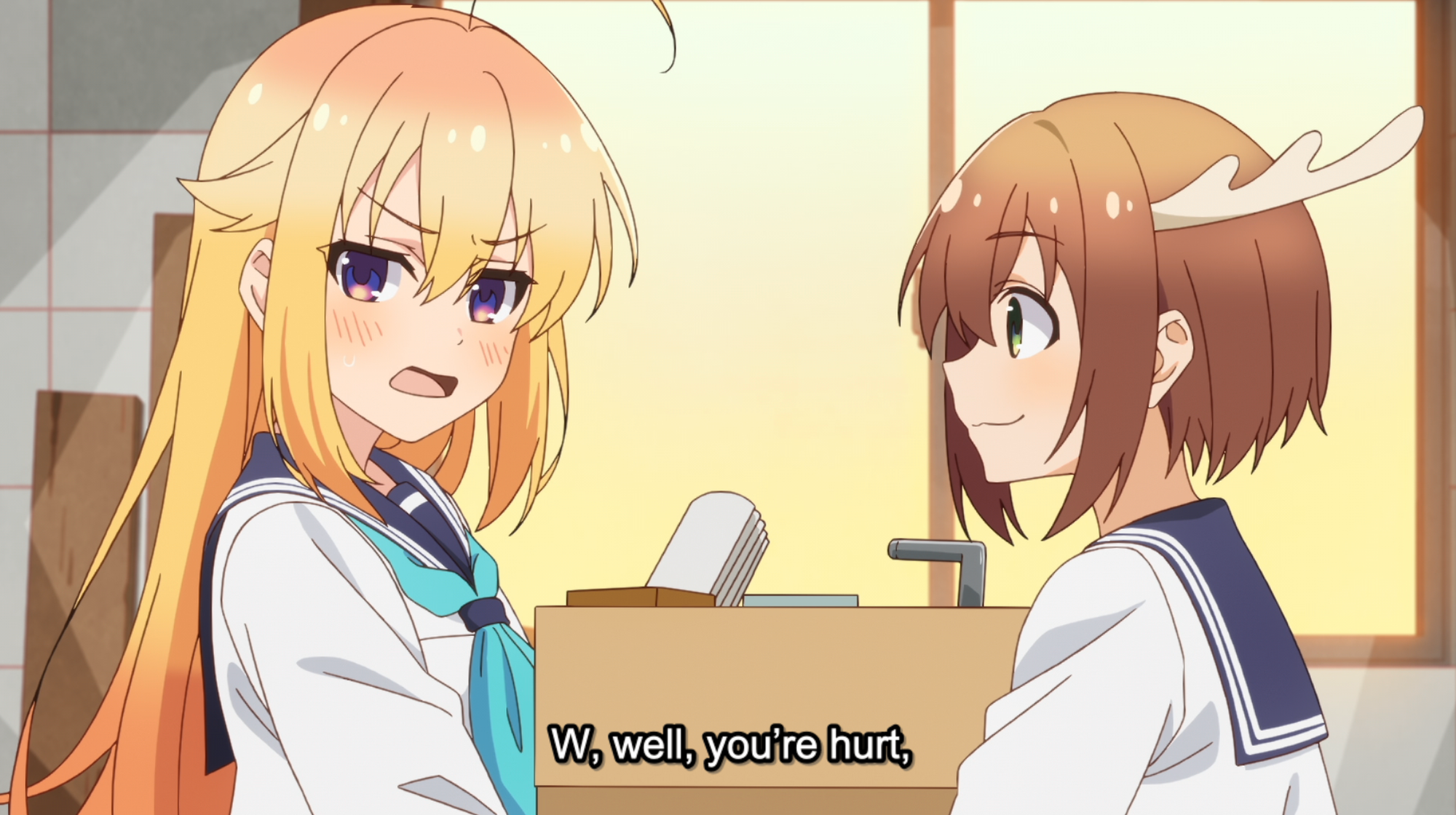
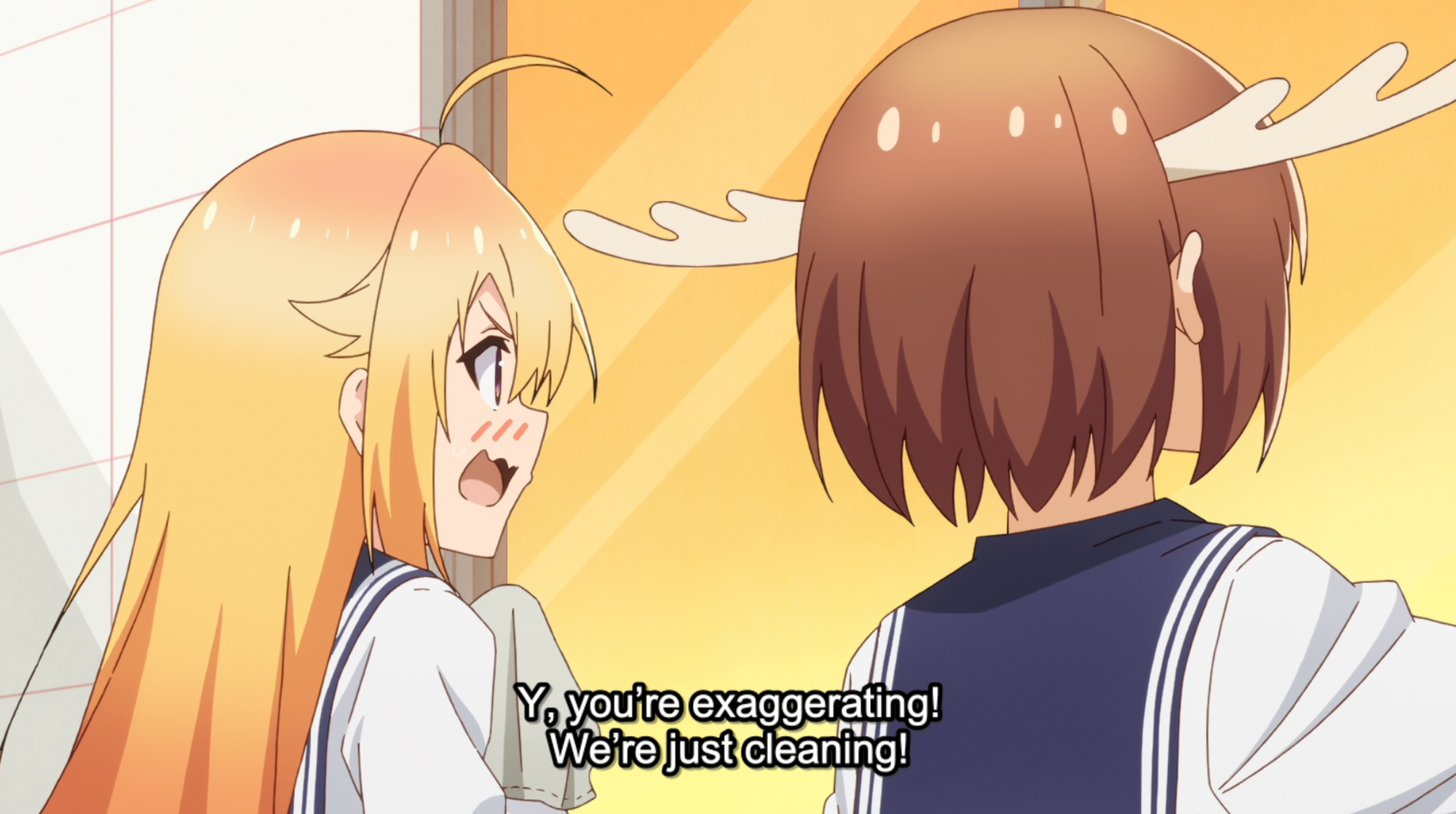
We've got some very unprofessional vowel extensions and all-word caps:
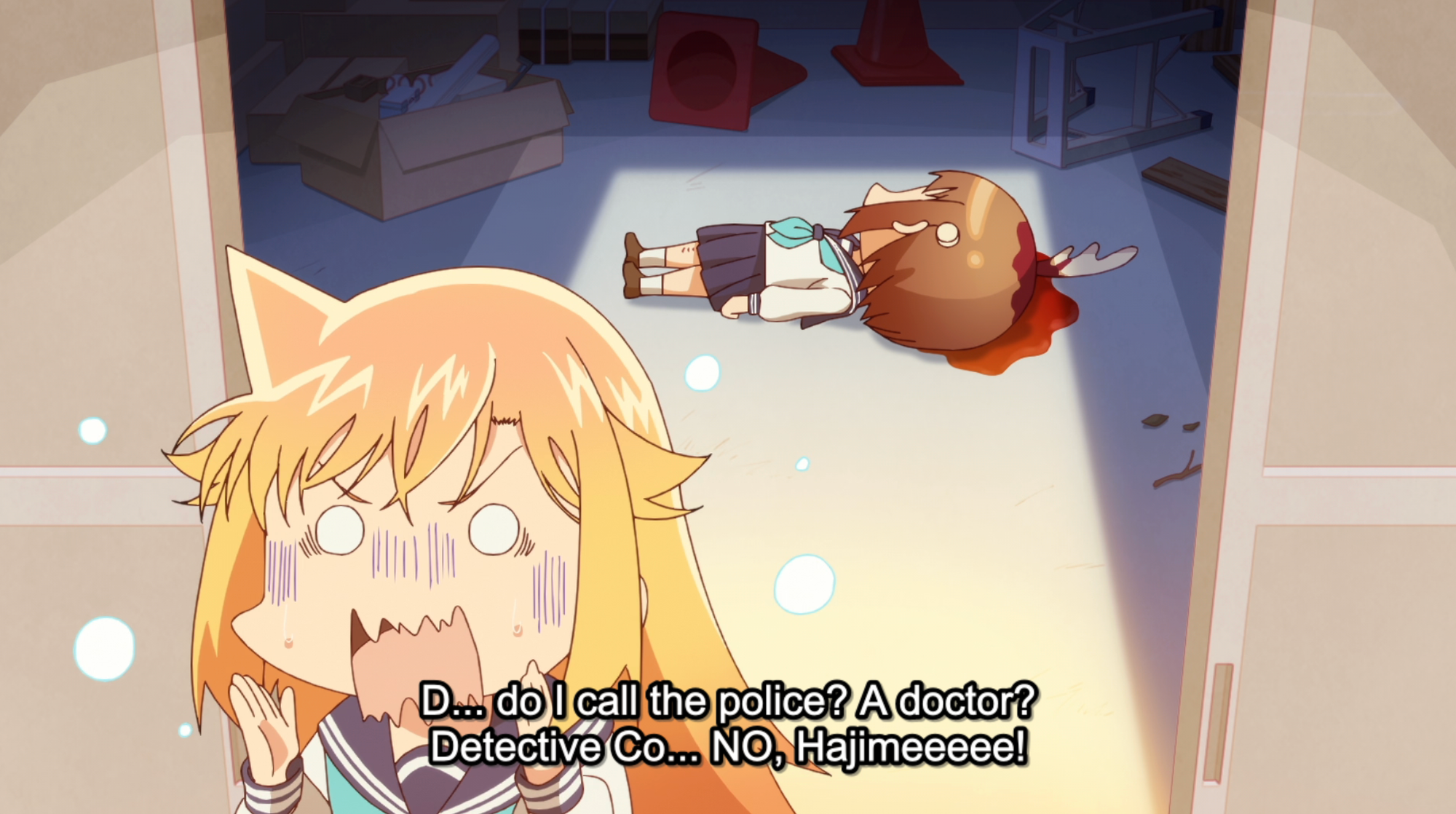
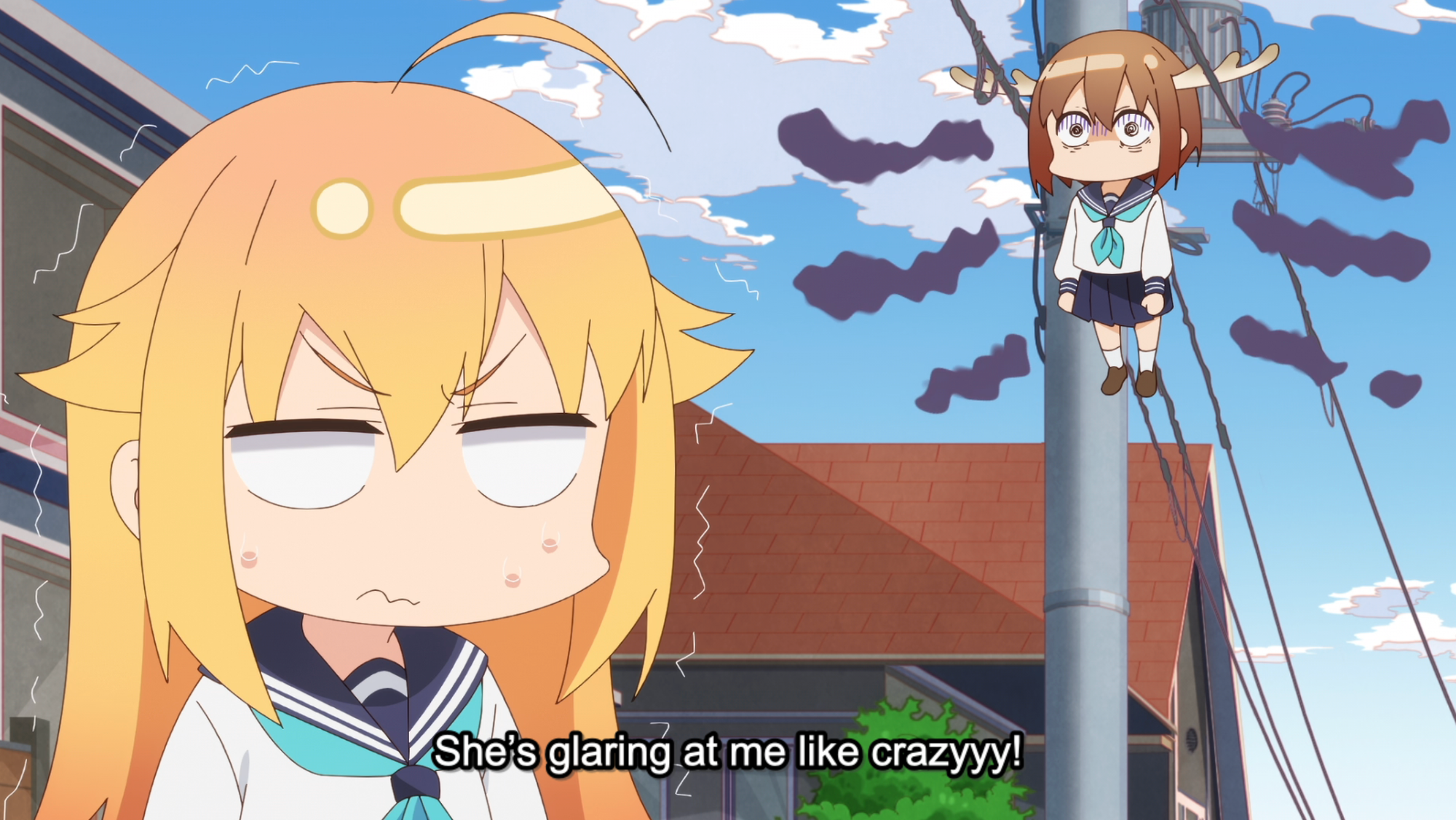
We've got missing capital letters:
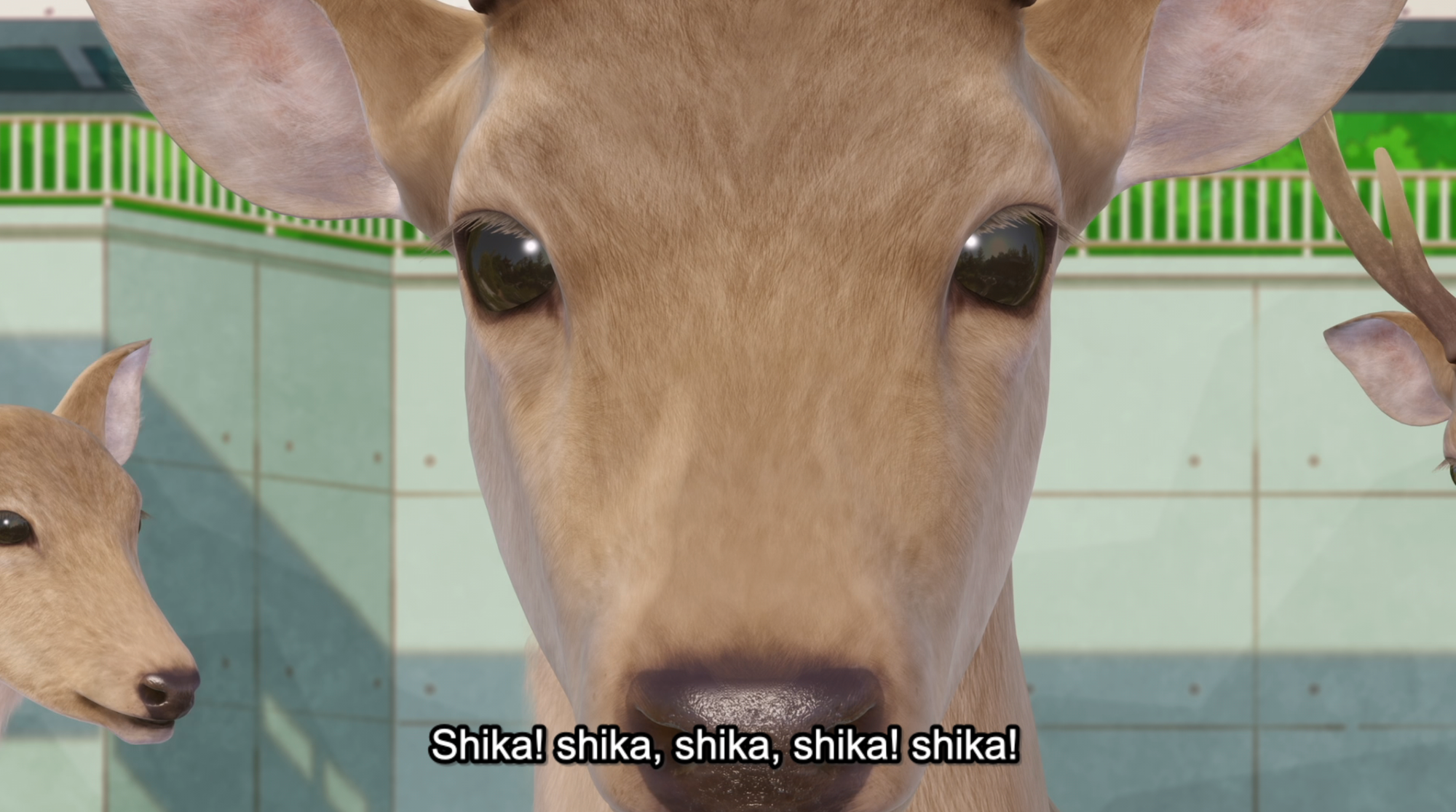
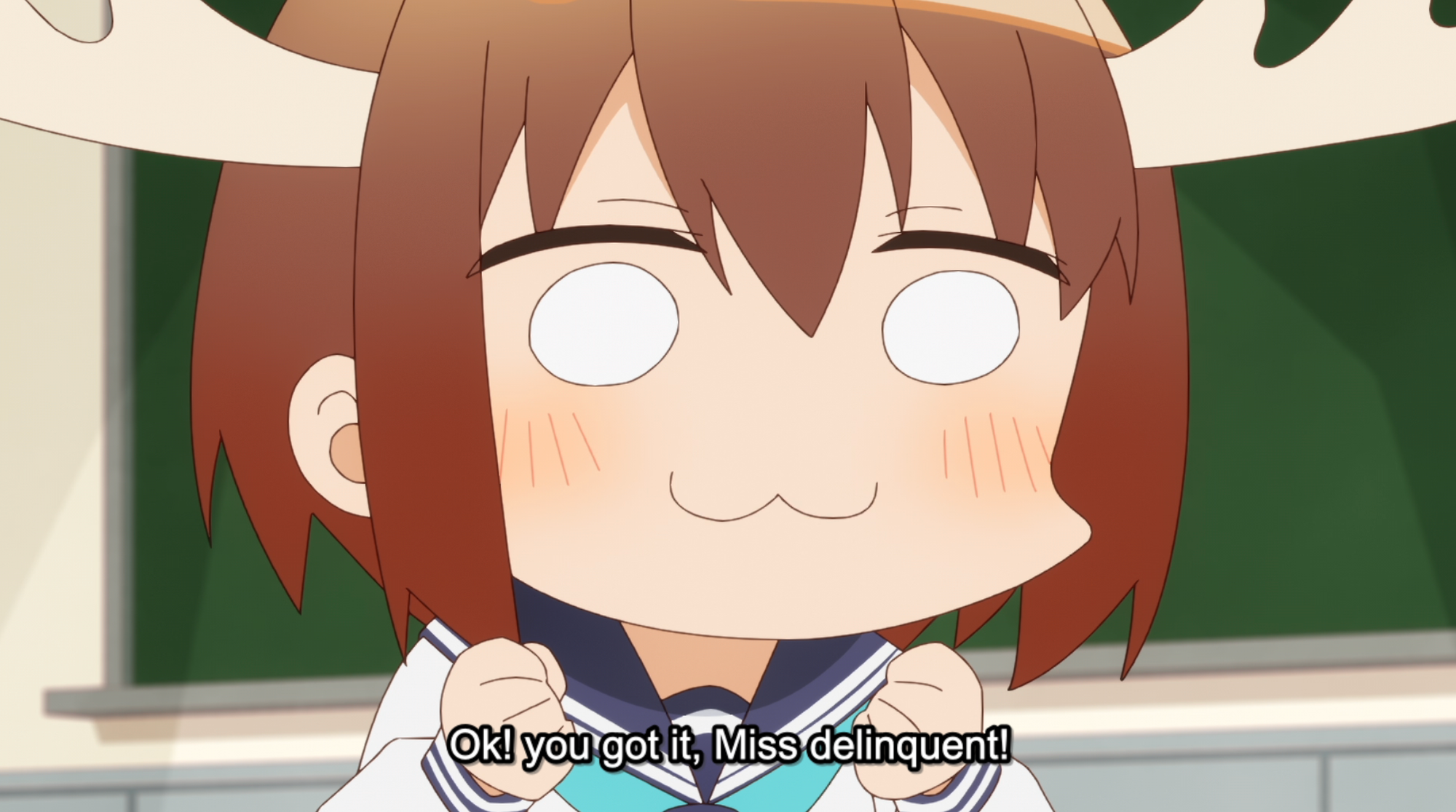
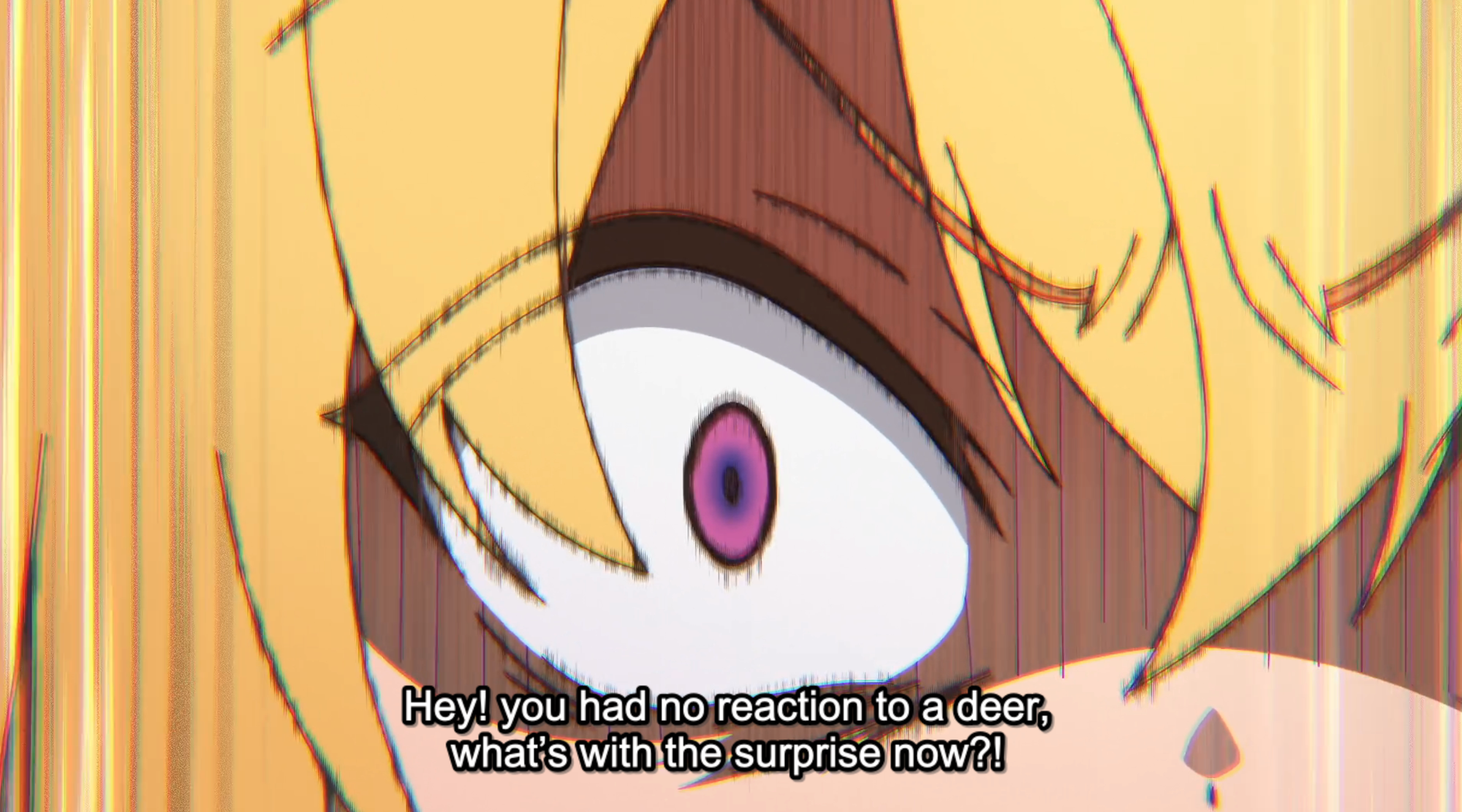
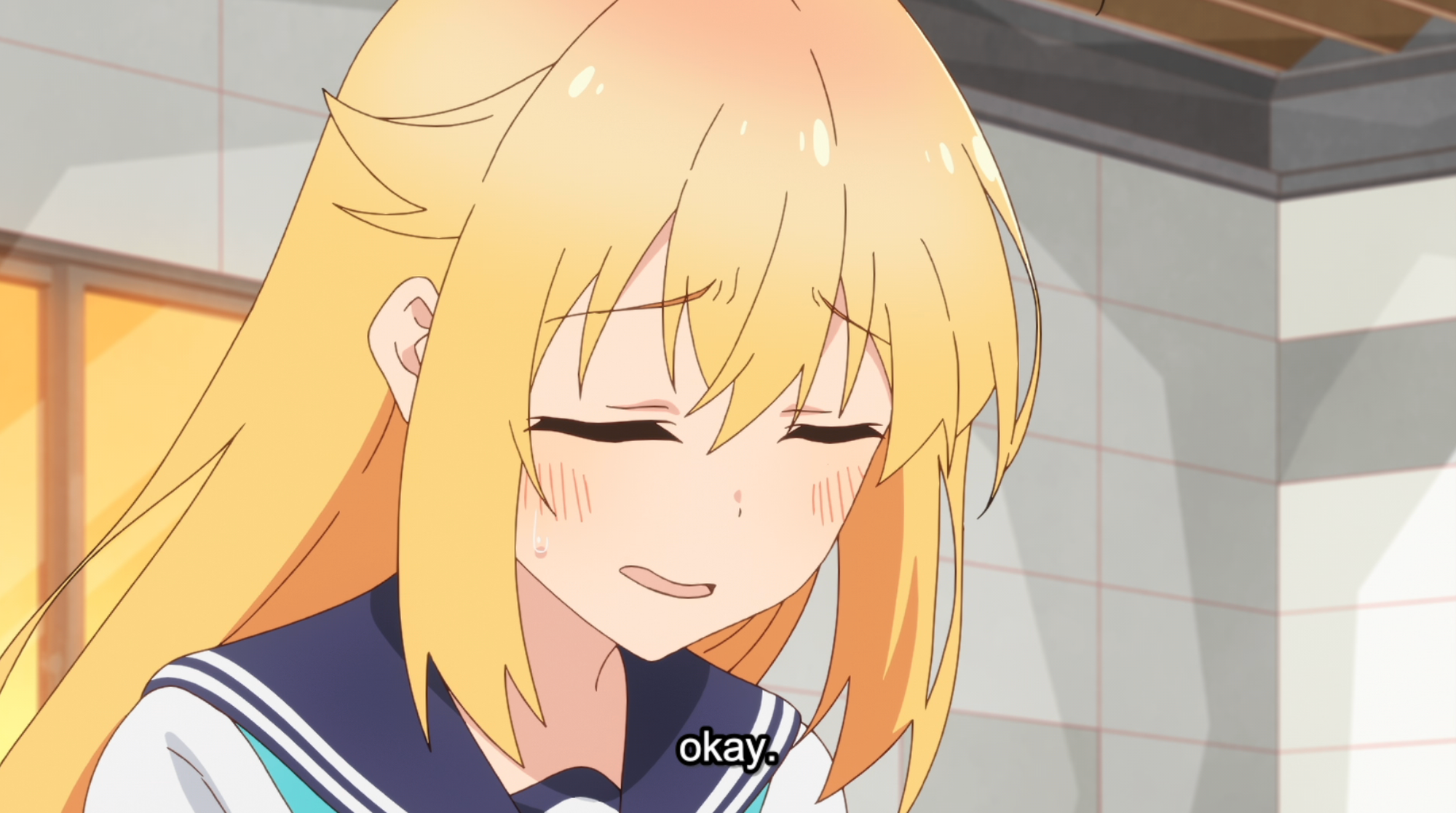
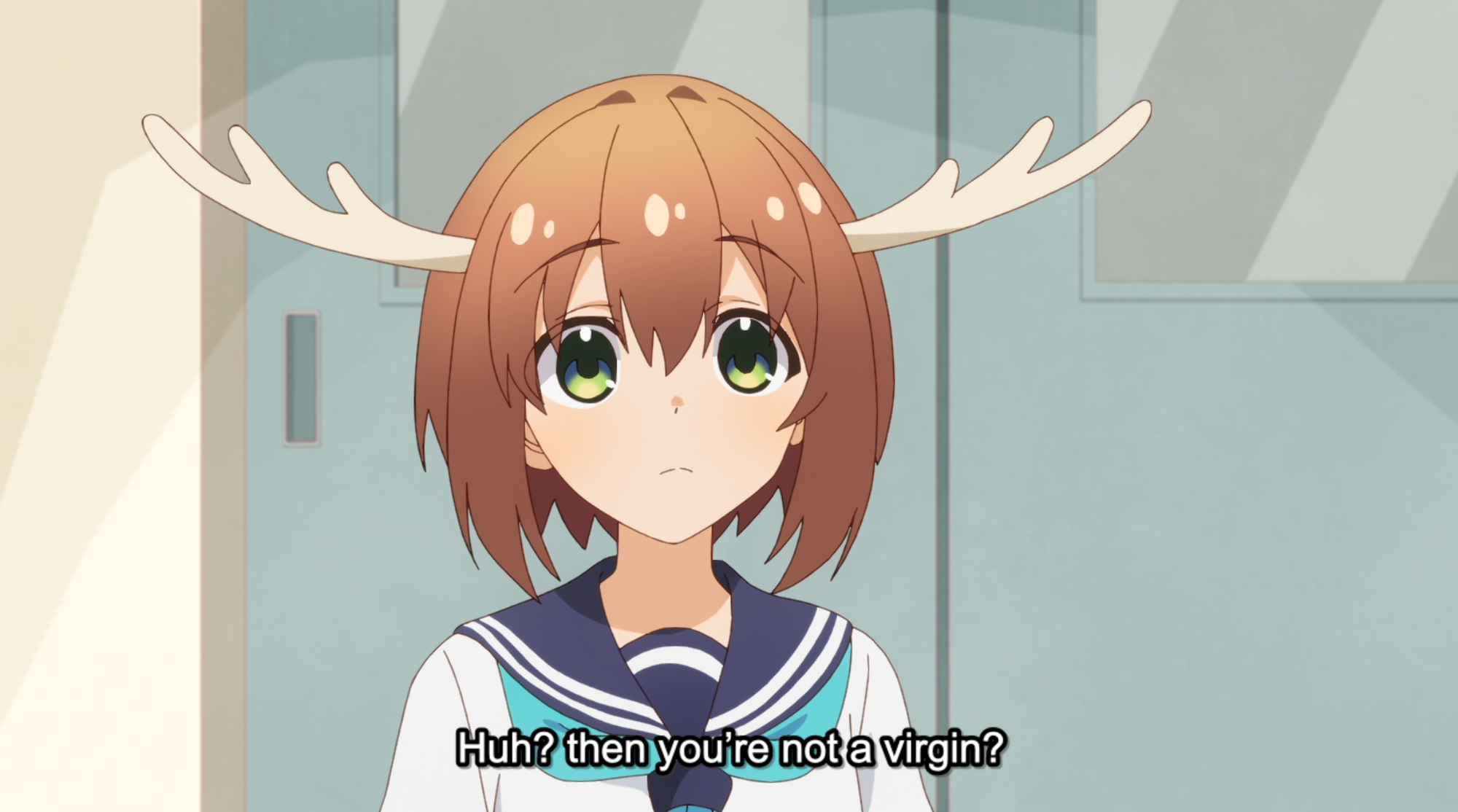
We've got missing spaces:
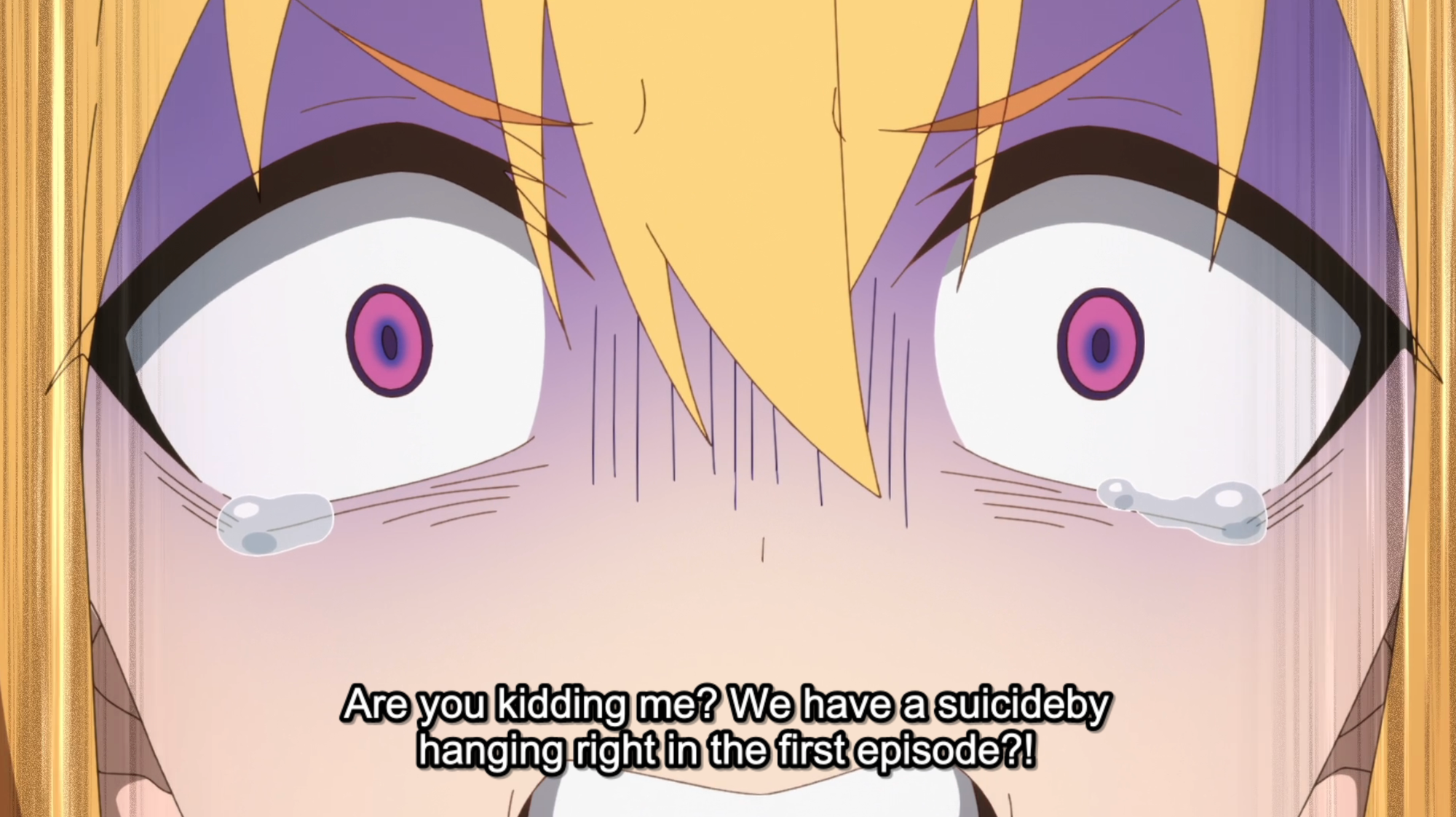
We've got bonus spaces:
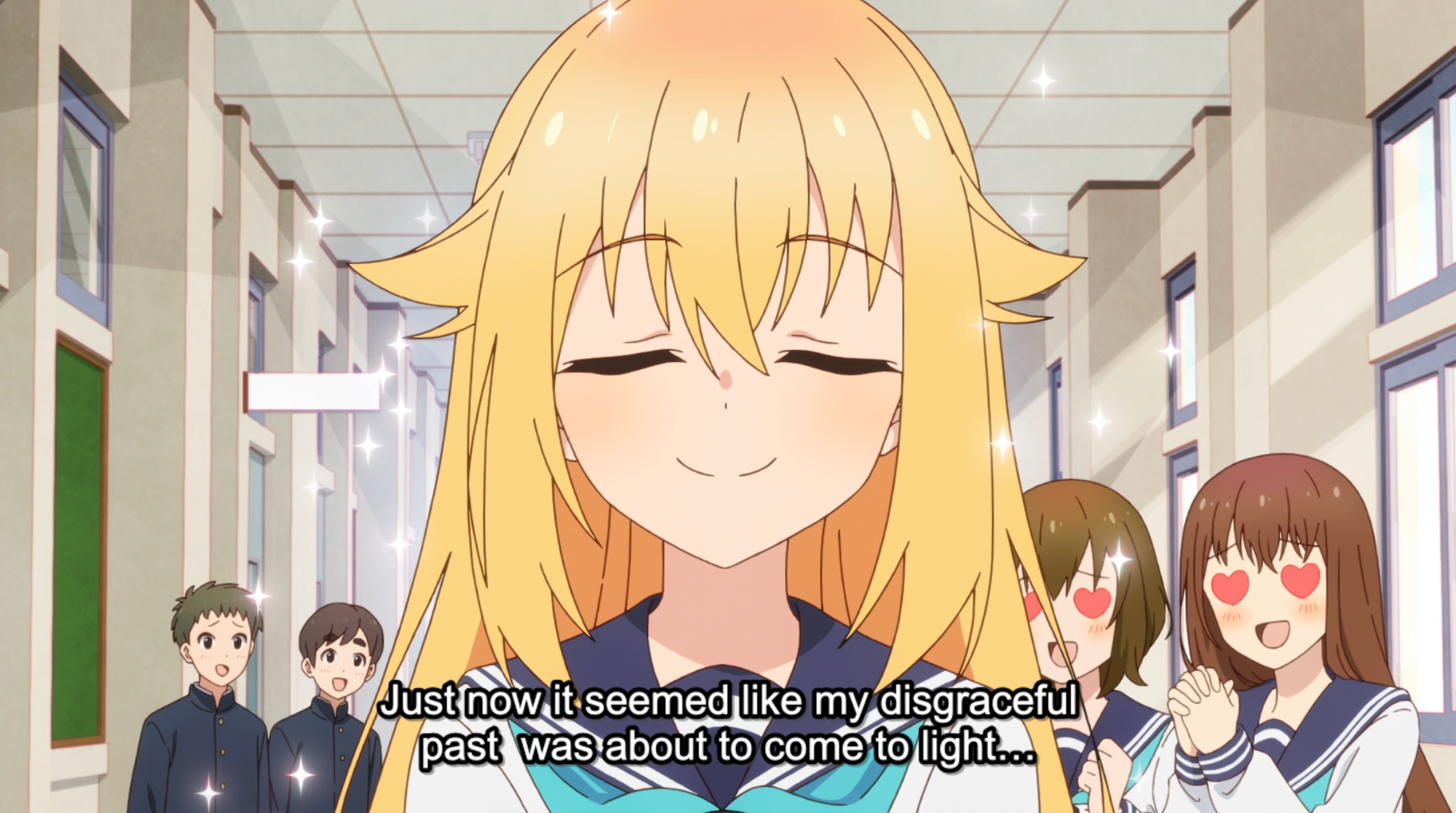
We've got missing letters:
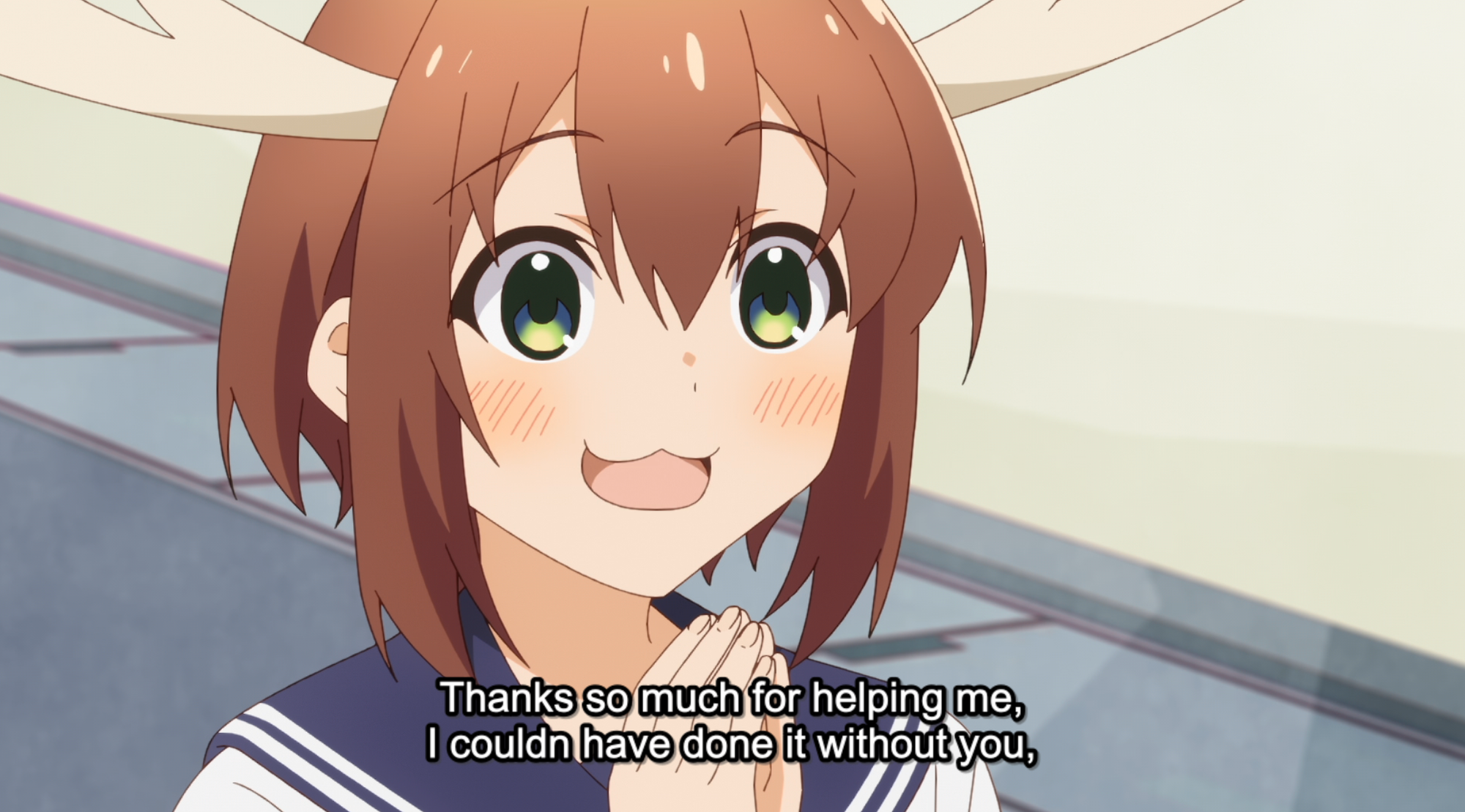
We've got missing punctuation:
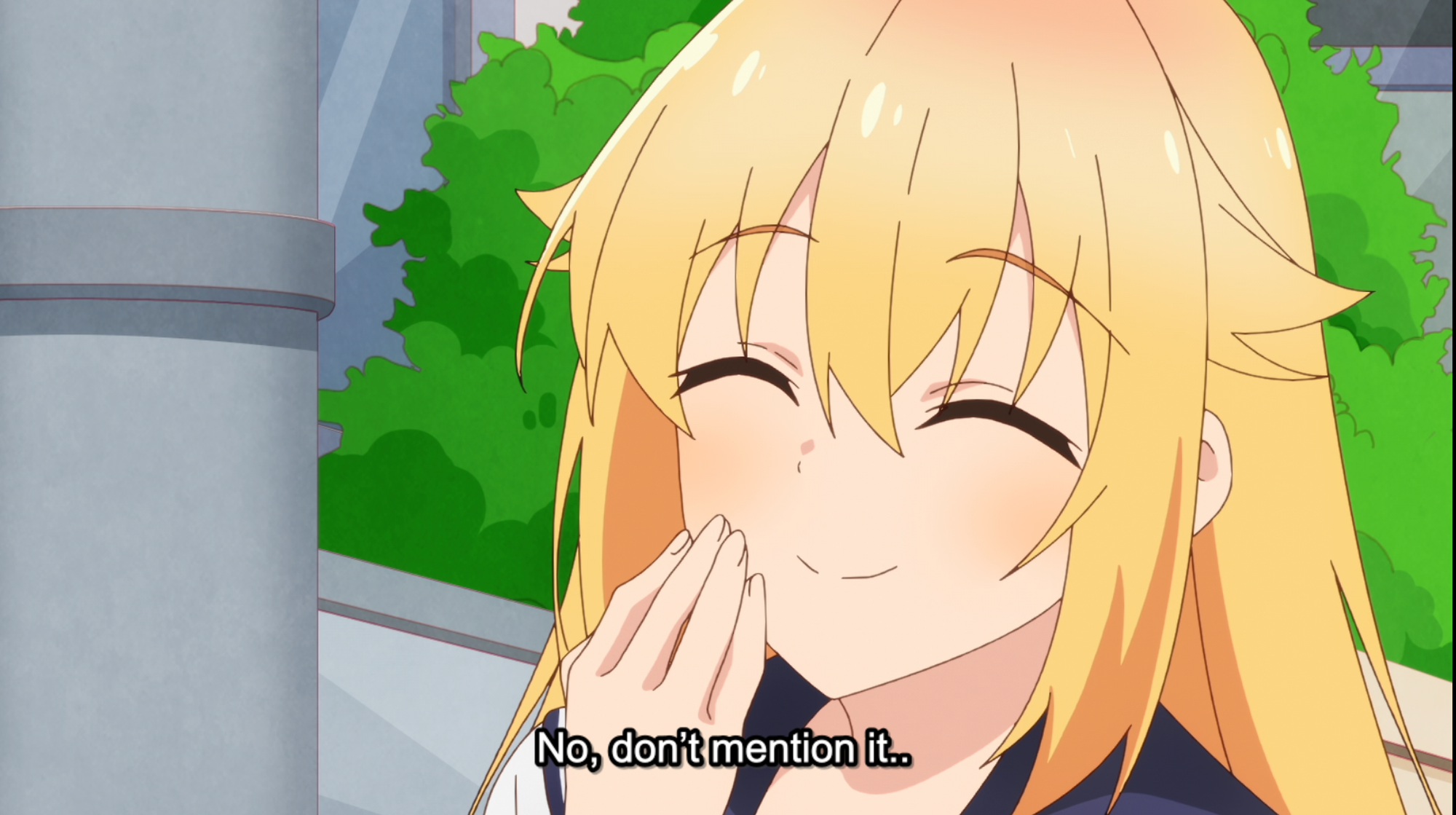
We've got bonus punctuation:
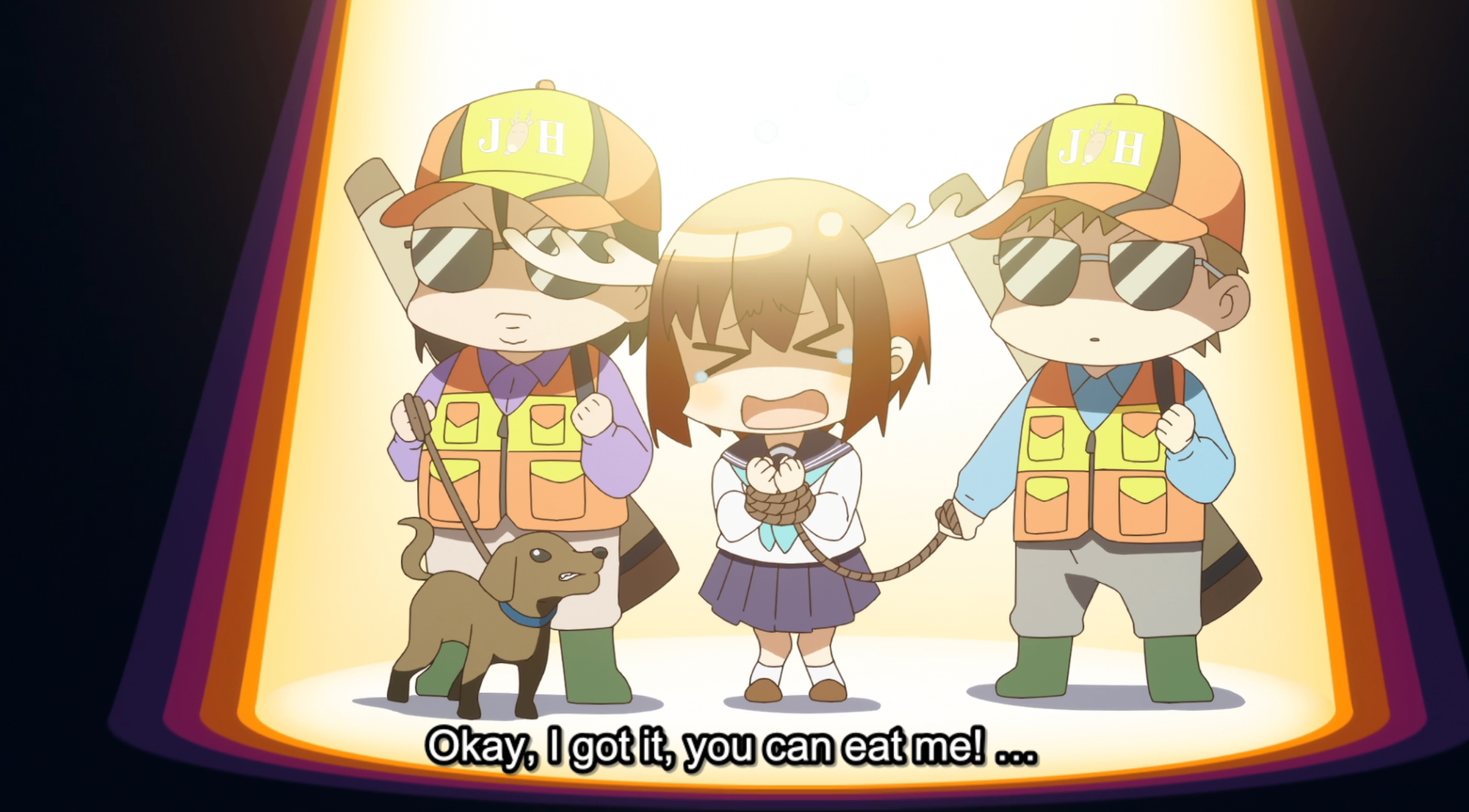
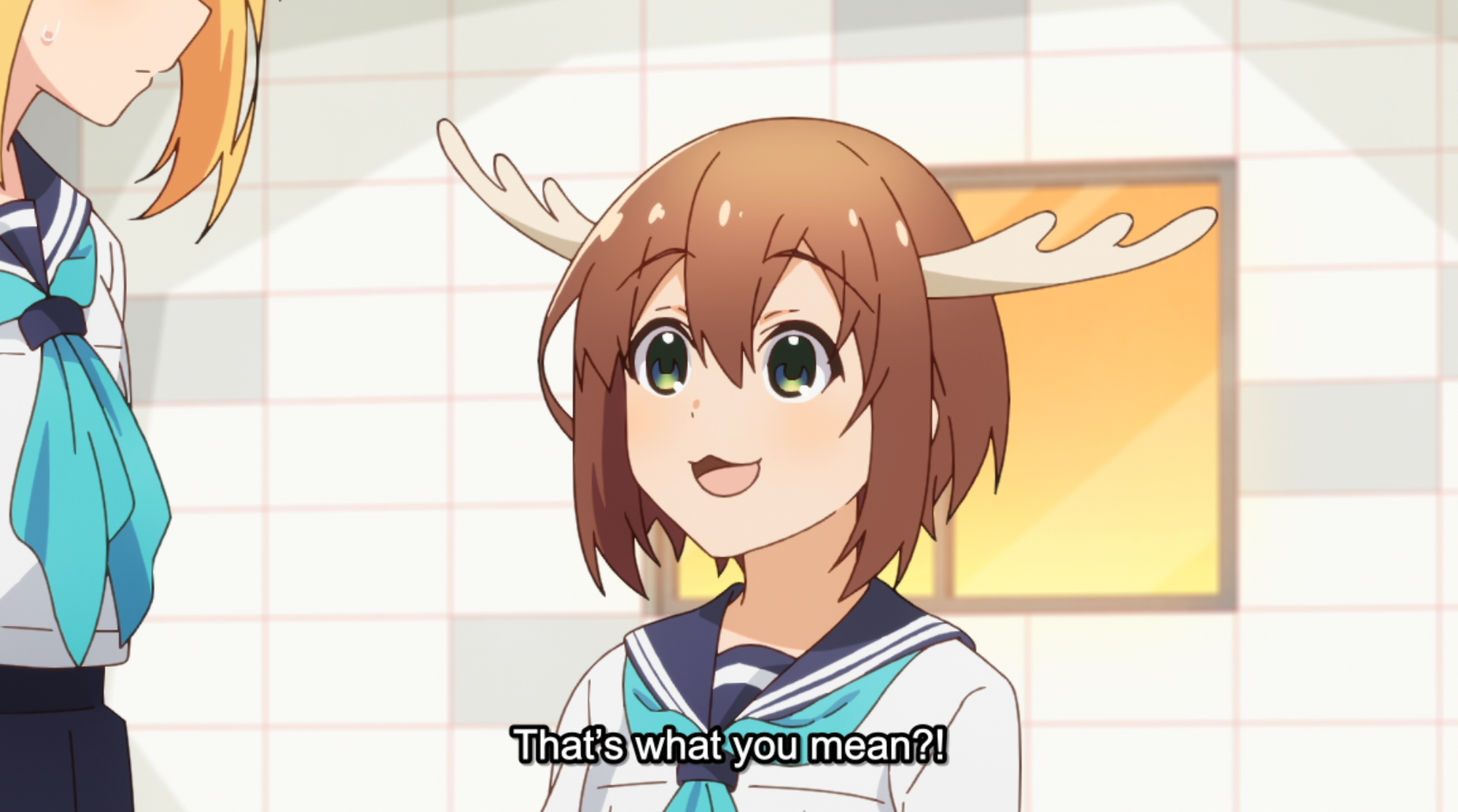
We've got weird contractions:
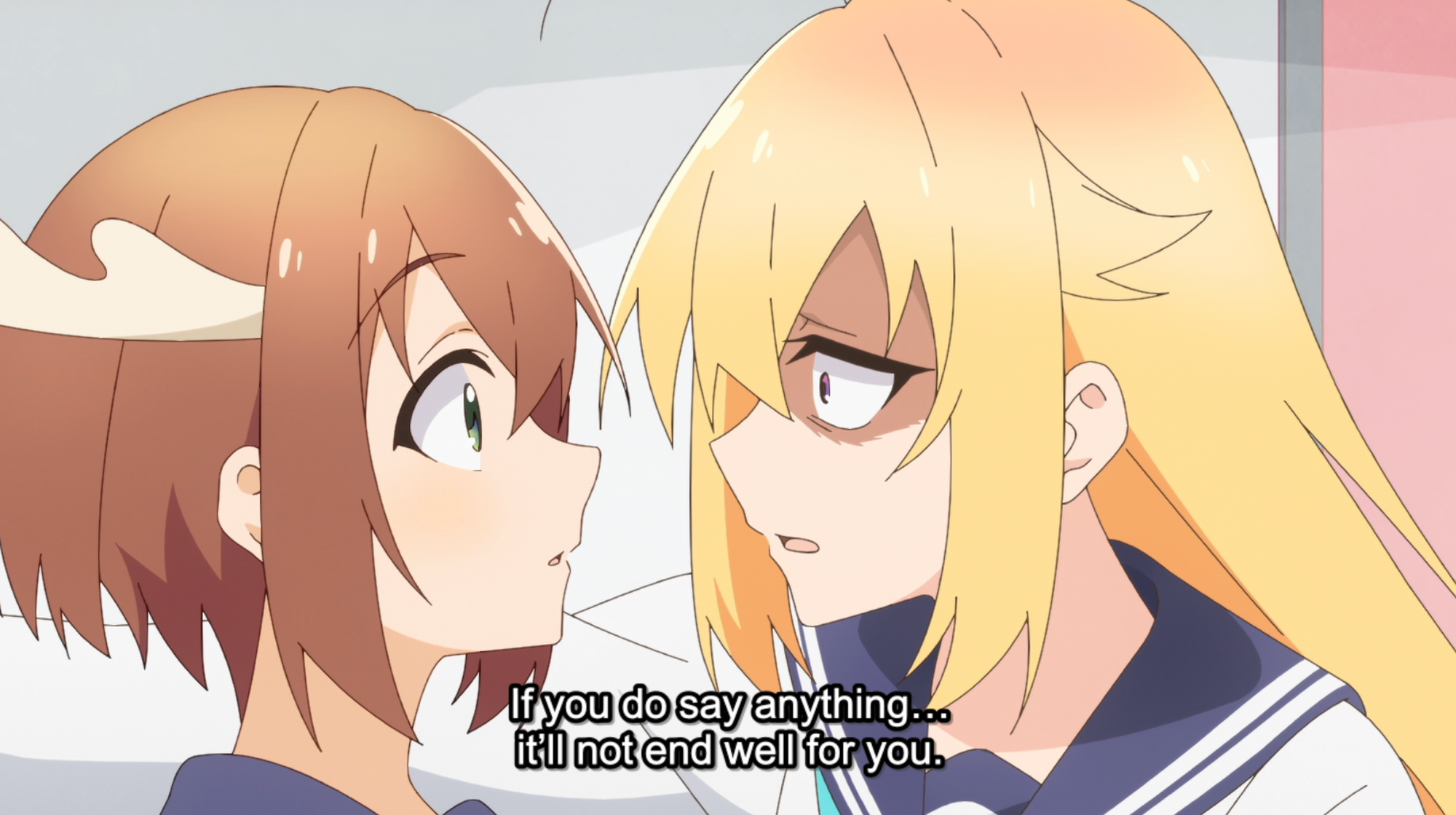
This script just hurts to read. The subtitles just hurt to watch. It's amazing that this passed any QC checks - either by malpractice, incompetence, or the lack of a QC check at all (which is sad, considering the caliber of a show that this is shaping up to be).
I've seen some takes online that this could be a machine translation, or that this was AI-powered. I'm not... convinced that's the case. It very well could be, but the errors I see are mostly syntactic, and that's the part I would expect an AI translation to not mess up. To me, this screams like a budget translation or one done by a team that doesn't know what they're doing; or most likely, one without an editing pass or a QC pass, shipping the raw and rough first-pass English translation out the door as-is. There's plenty of other minor quirks and issues with the script that I didn't have time to delve deep into within this article, but I think this paints an accurate picture of the inaccuracies here.
What's the solution? Well, one hopes that the companies producing these subs actually level up their game and realize just how important it is to produce high-quality subs. After all, when the dialogue around a show isn't about how good the show is, but how bad the subs are, that's an abject failure by the people responsible for localizing it and bringing it to the masses.
Or maybe this is the endgame of a capitalist economy and we're all slaves for content who are just doomed to eat whatever we're fed because we're so hungry for any subs.
- Some schools of thought focus on characters per second and try to stick between 12-15 cps. For those curious, these two lines are 21 and 31 characters per second, respectively.
Questions or comments? Tweet us at @fansubbing! You can also follow us for updates on the latest articles, too.
